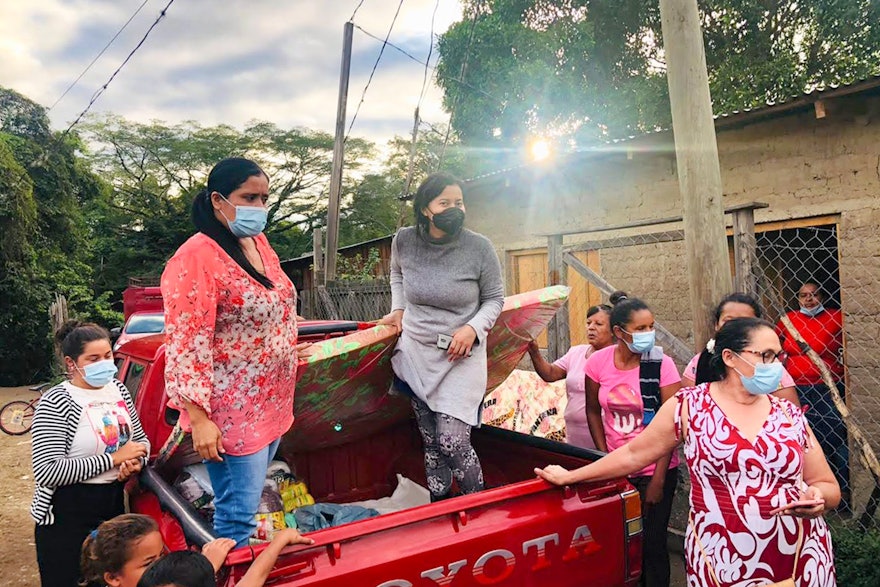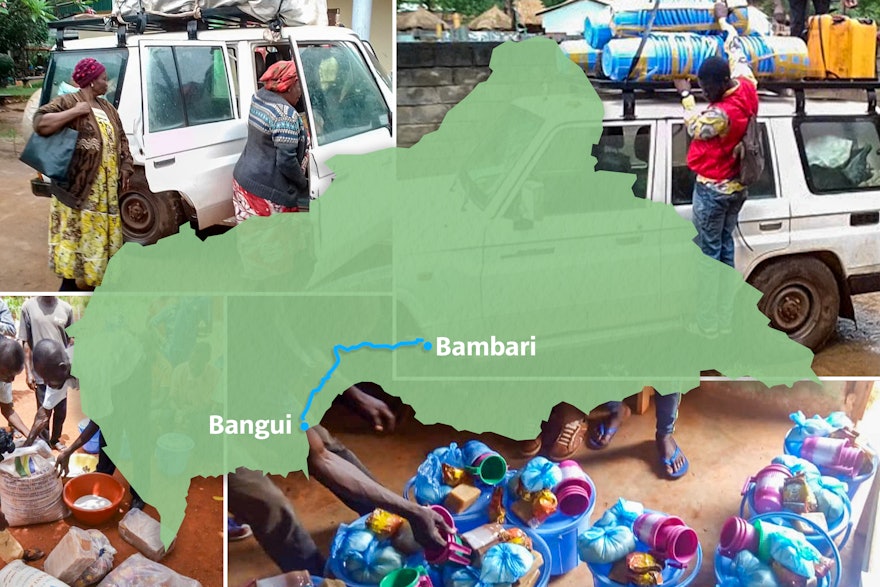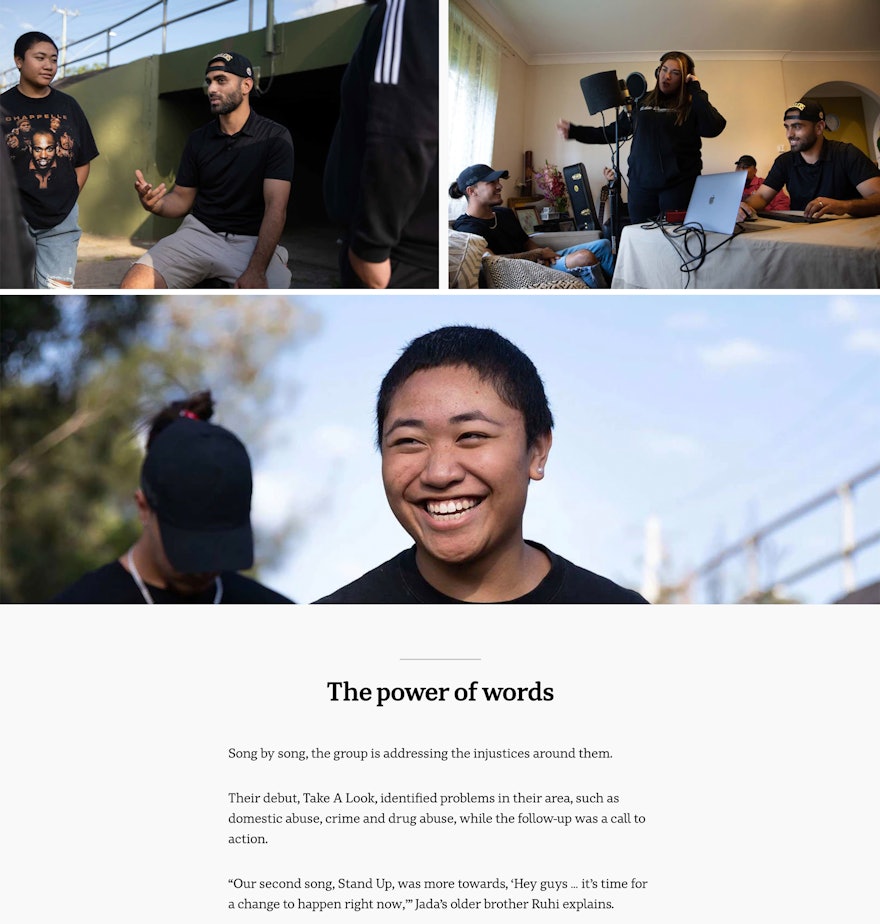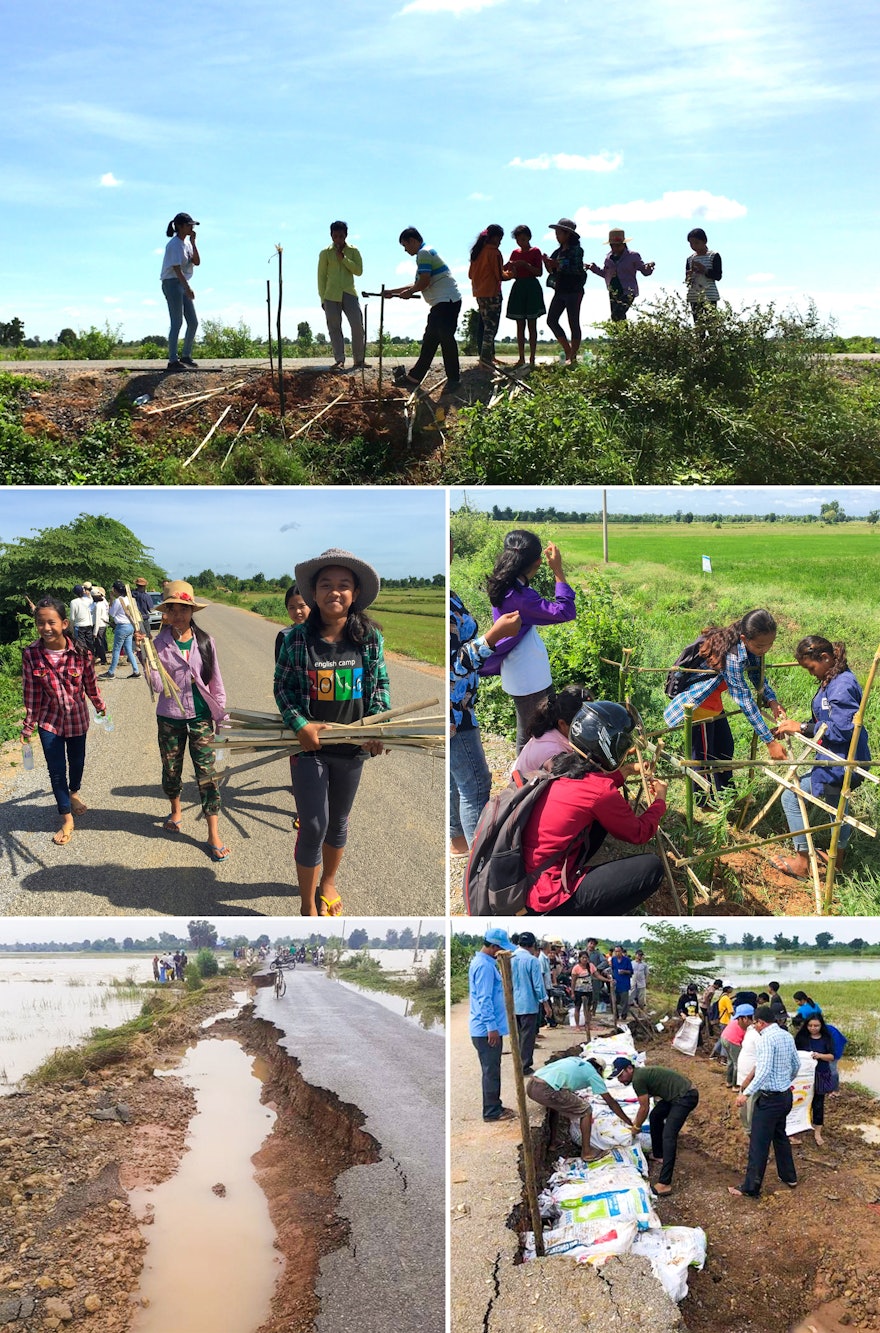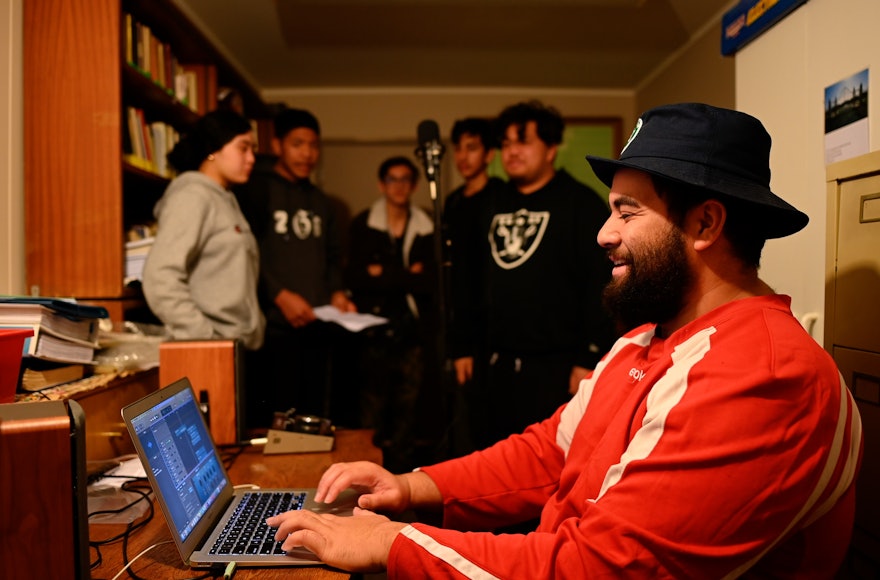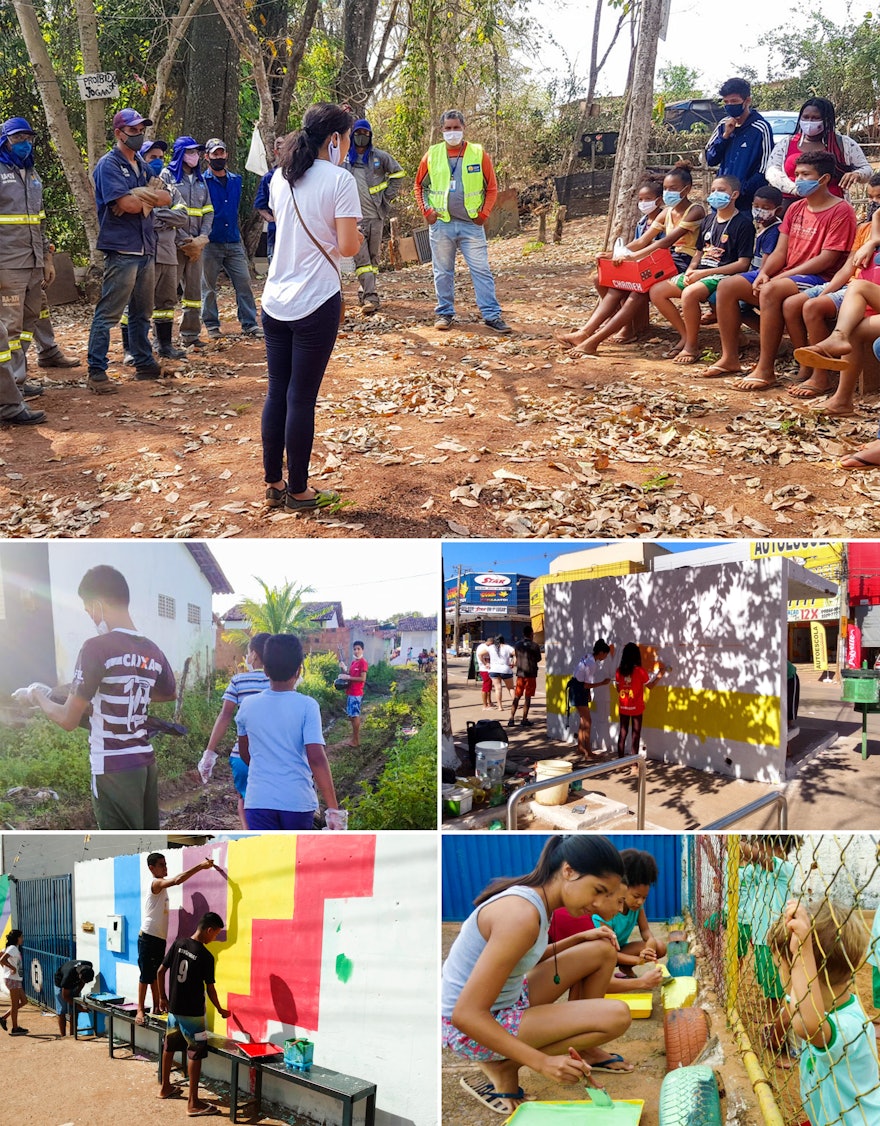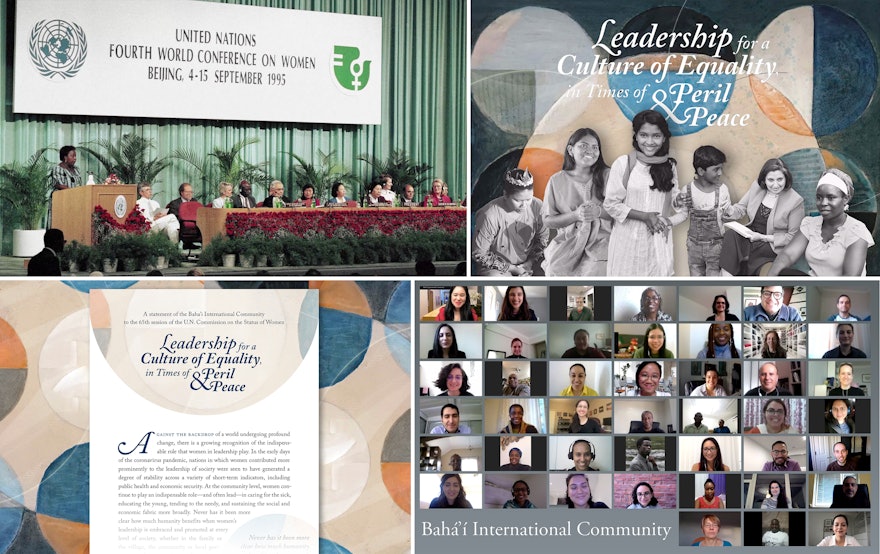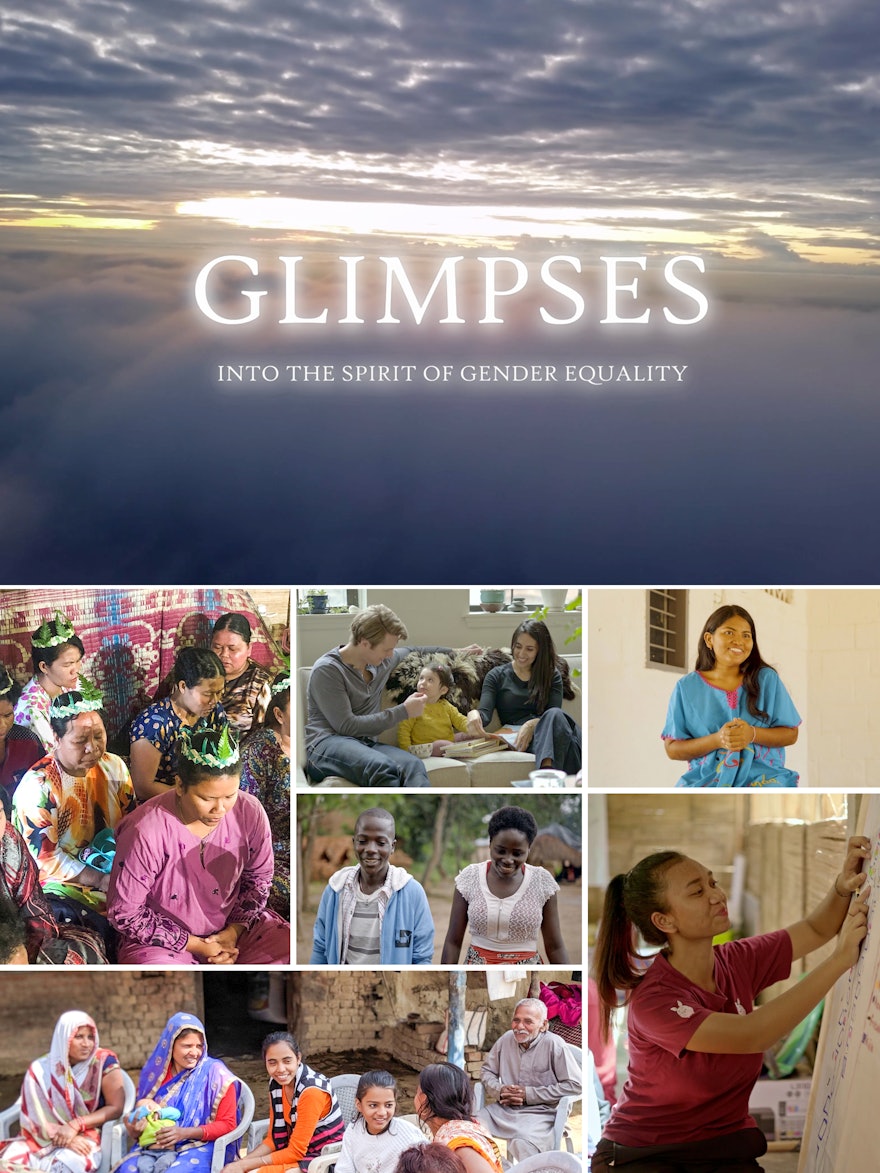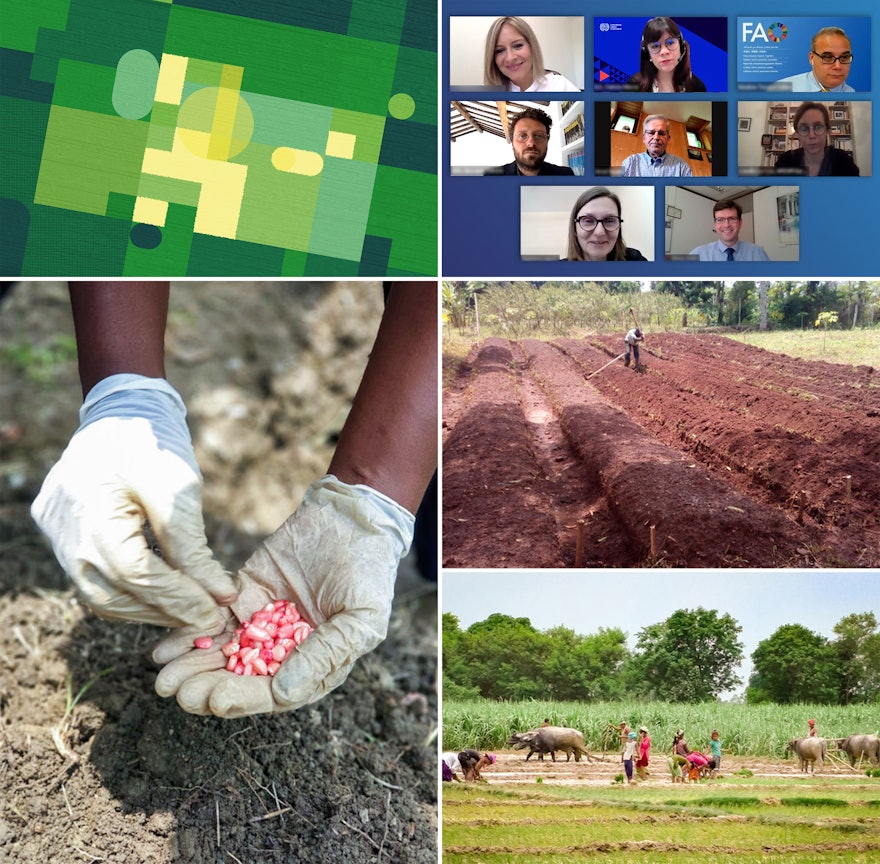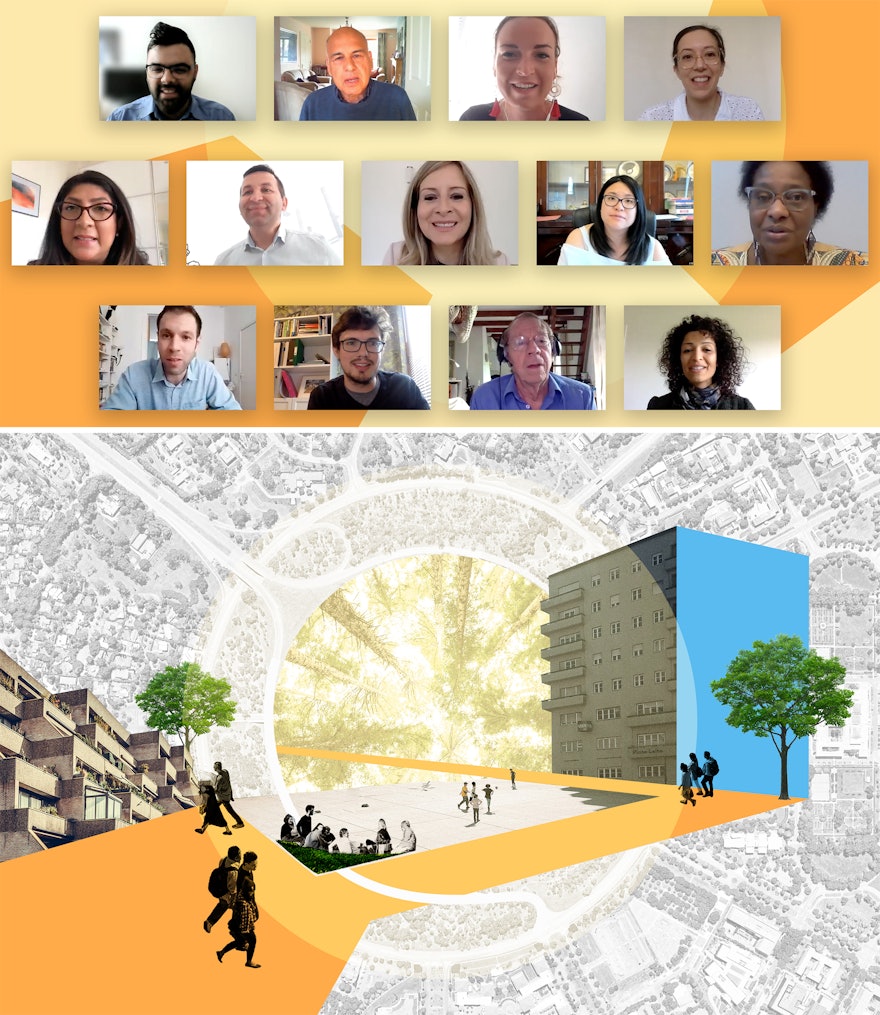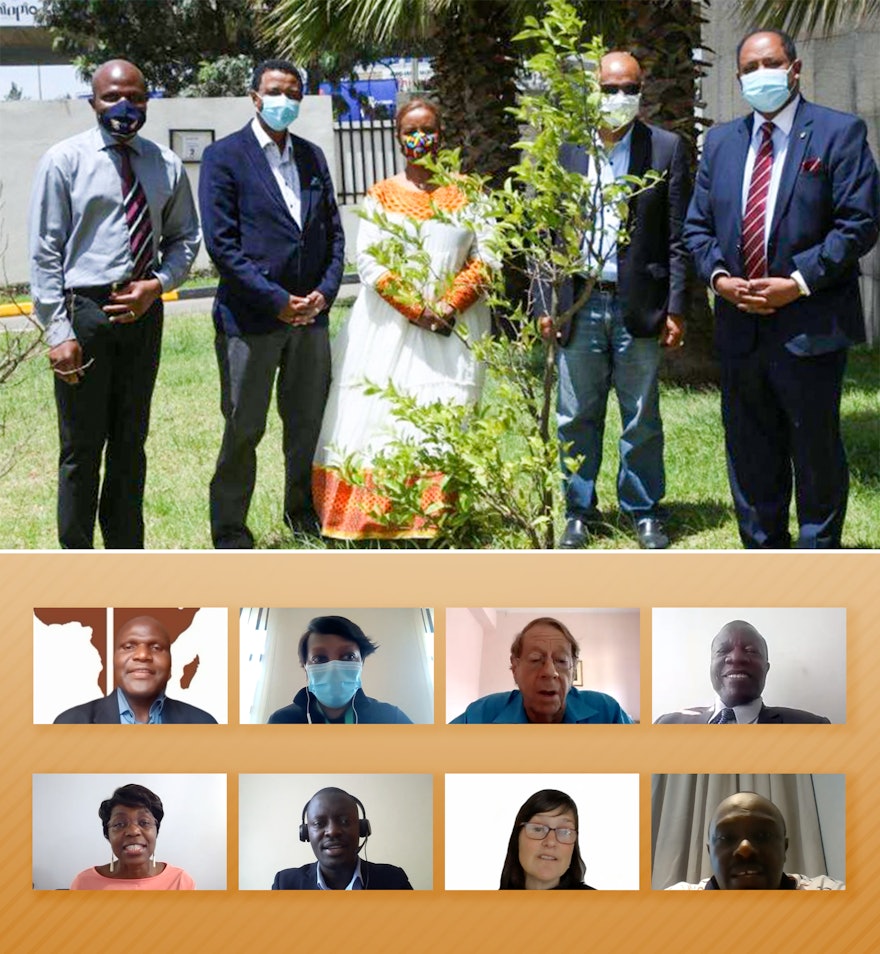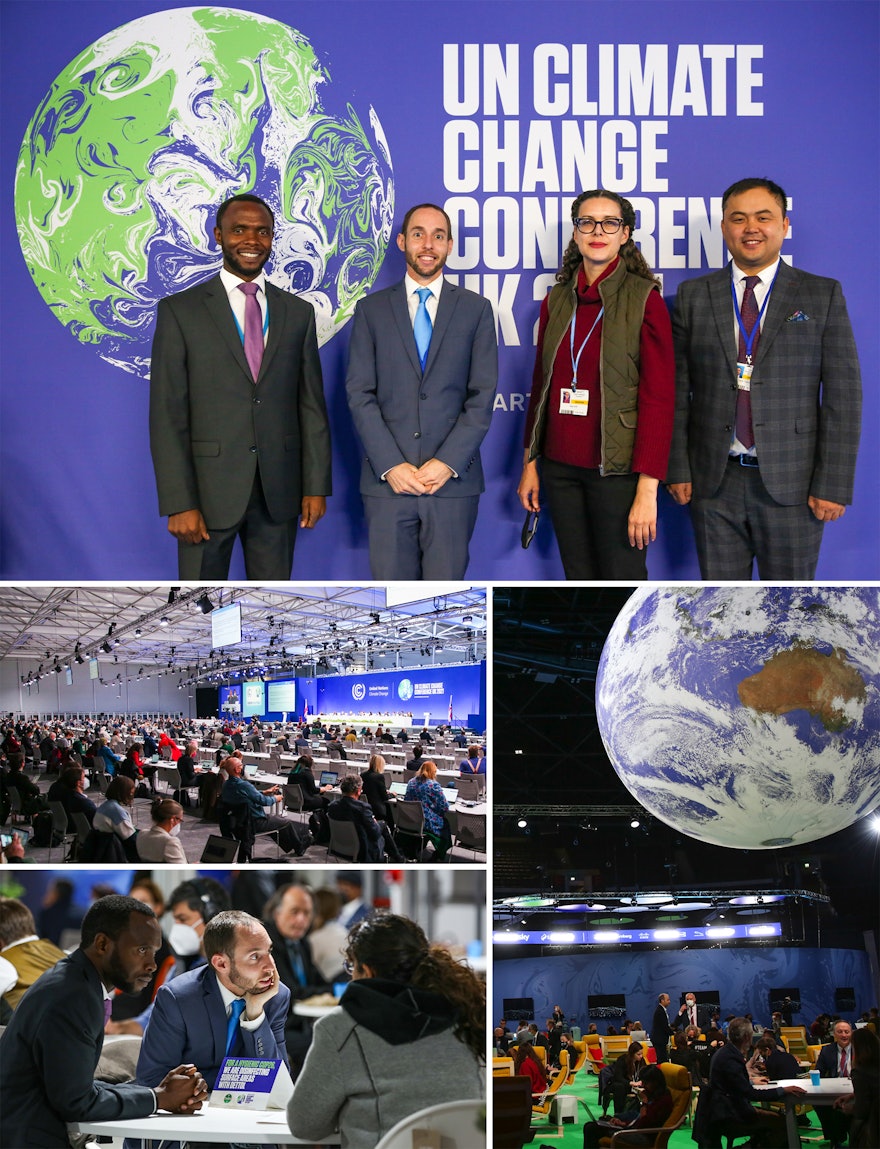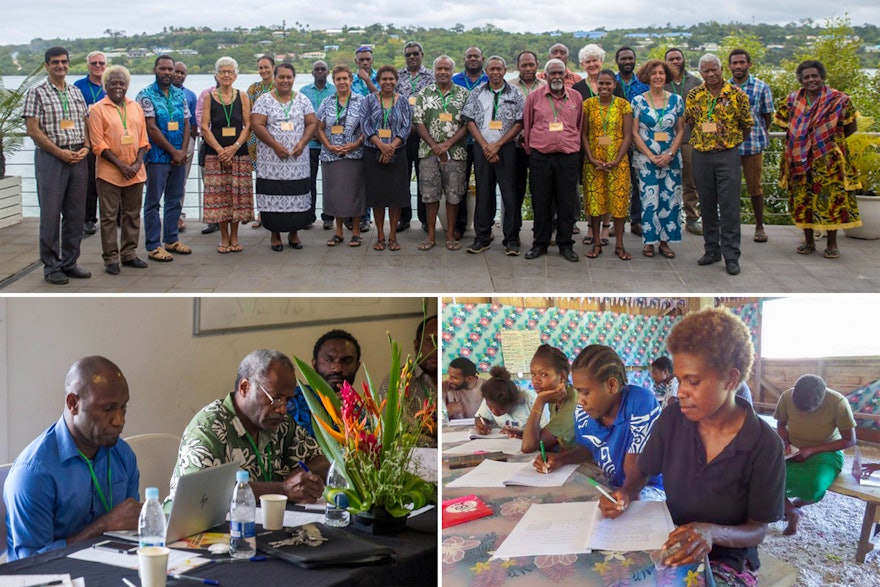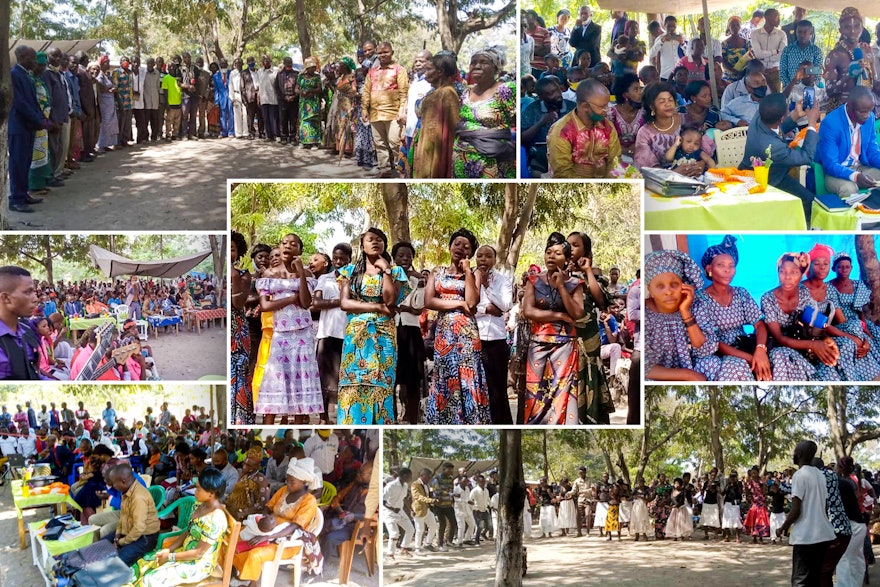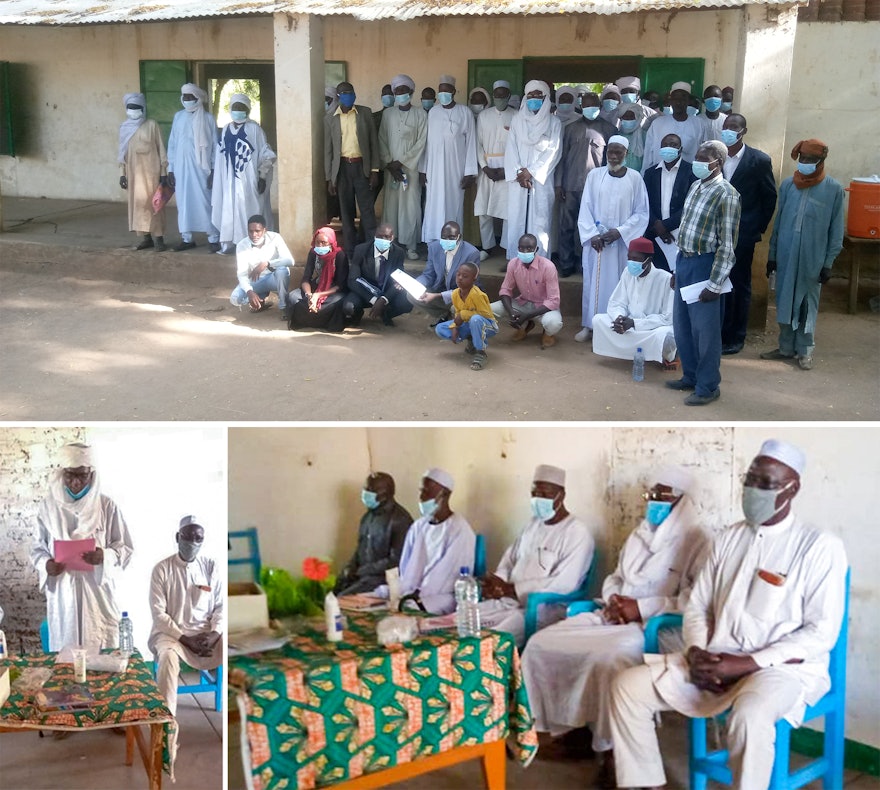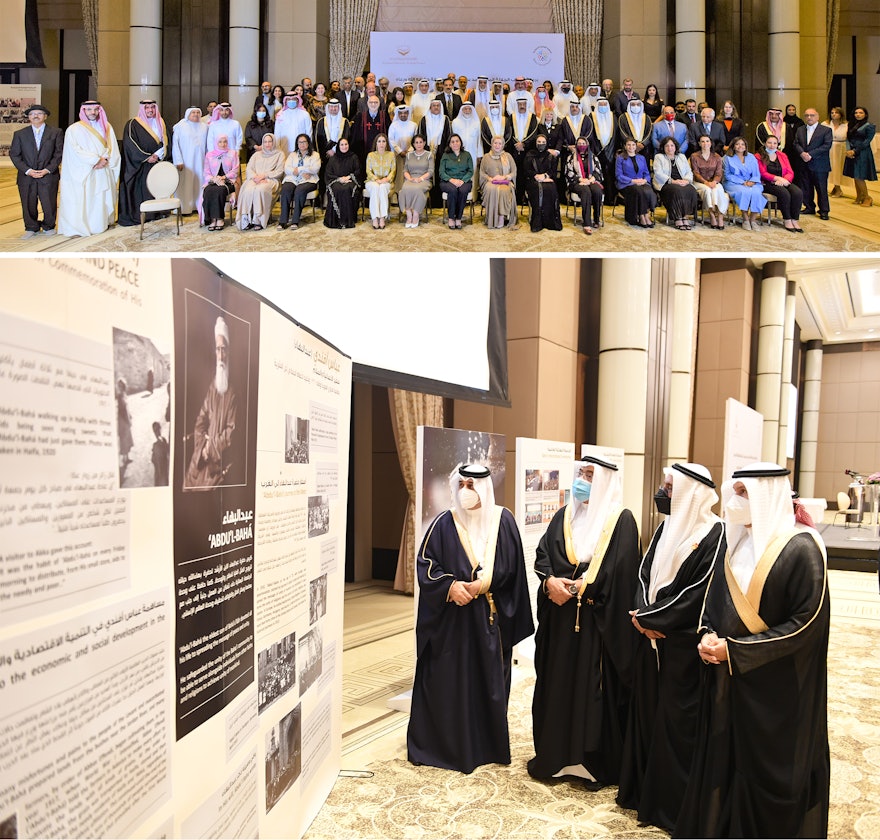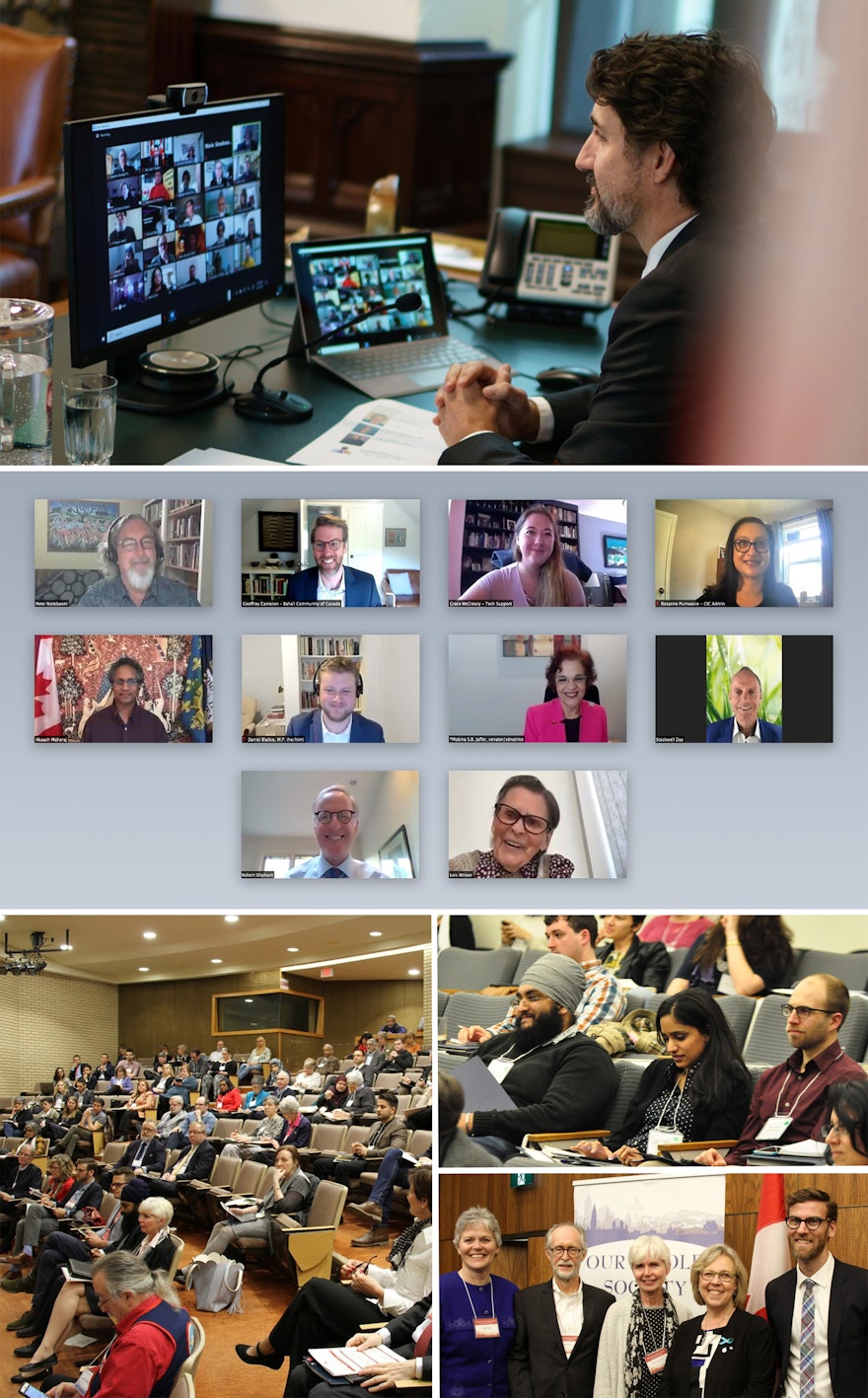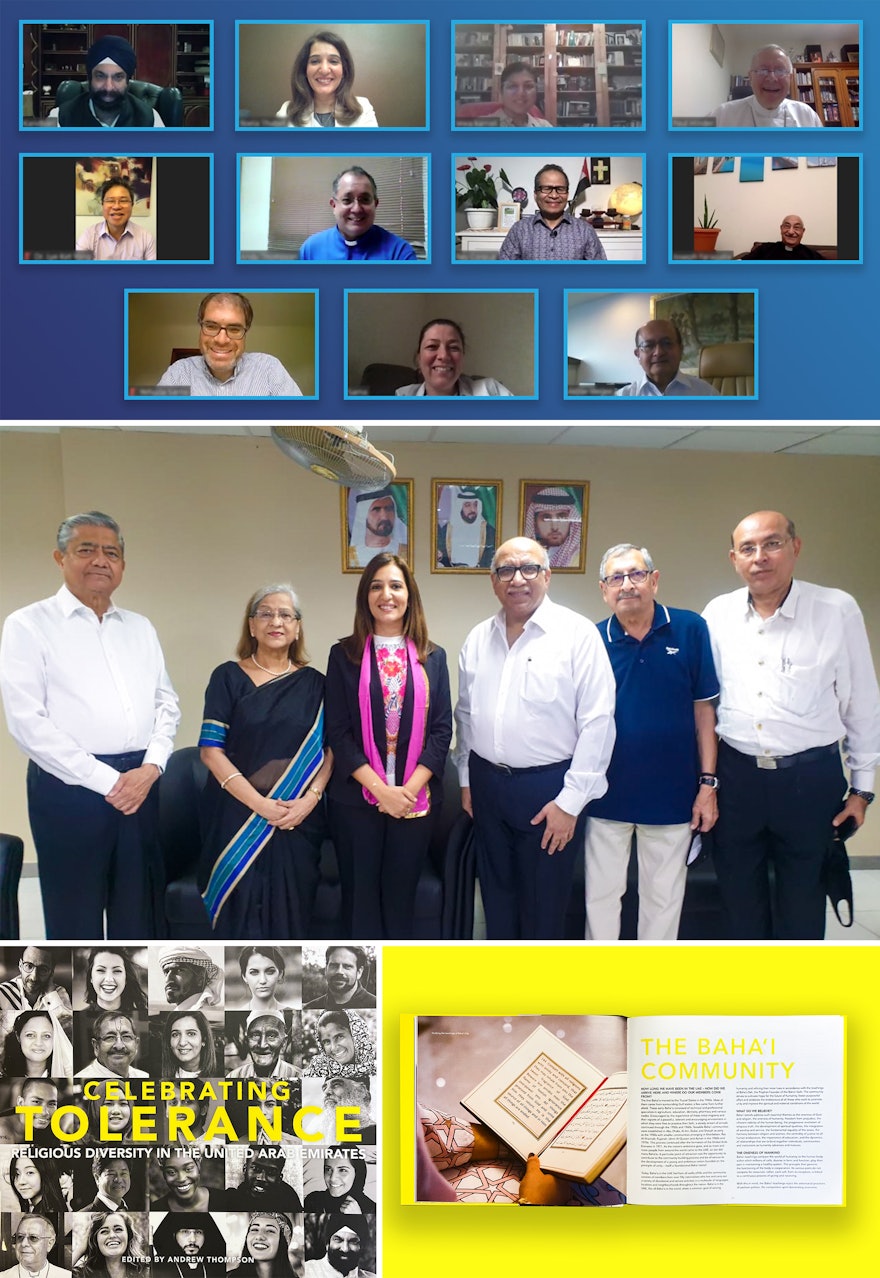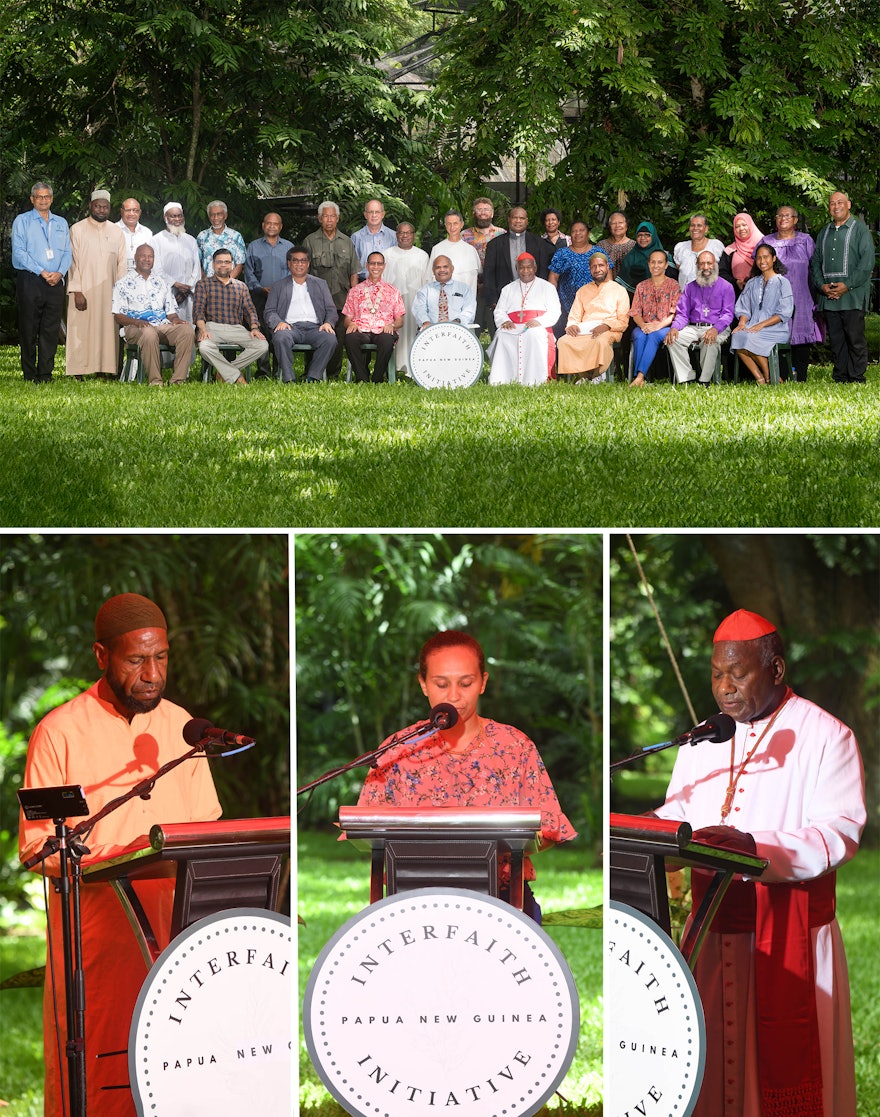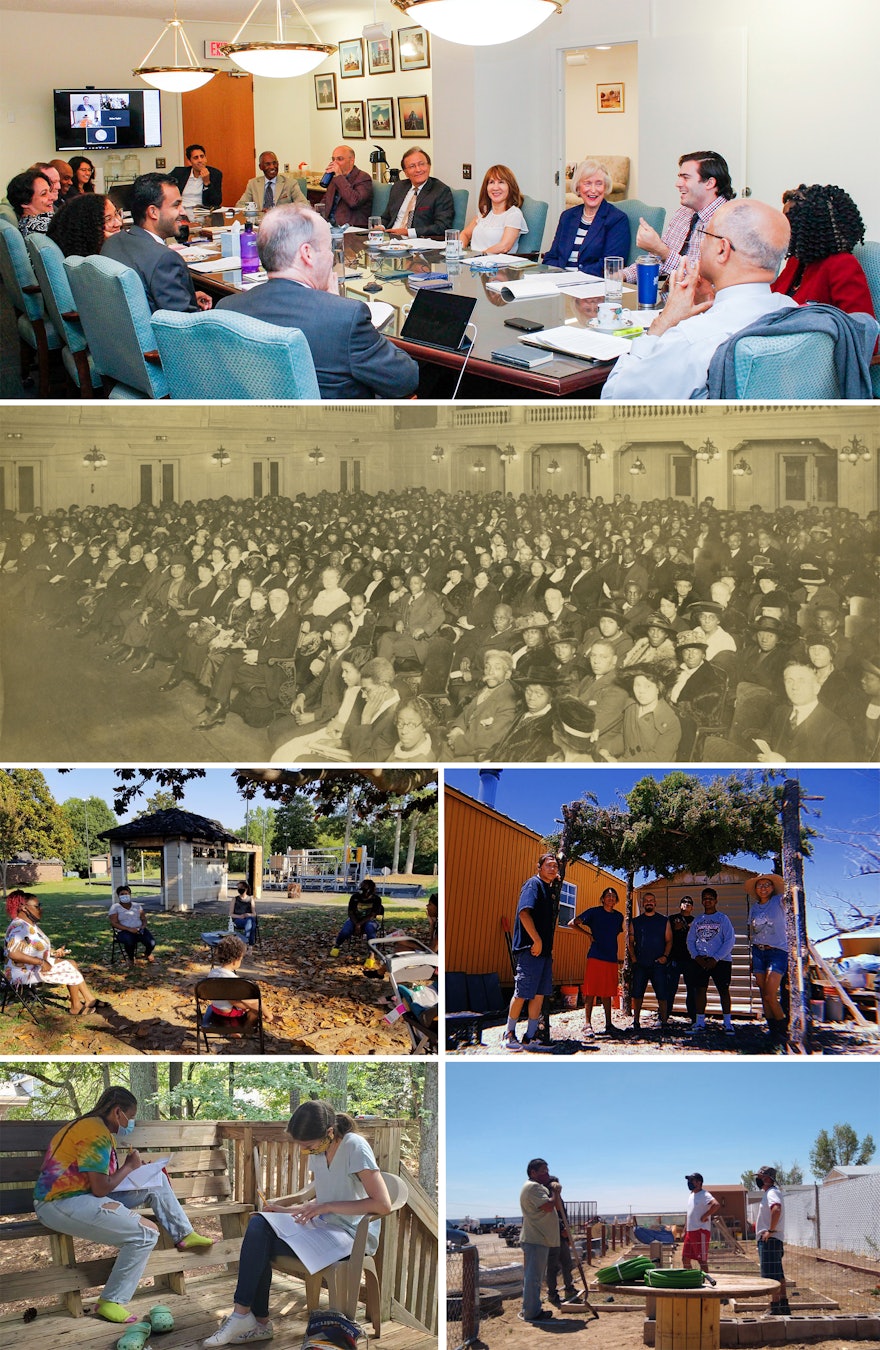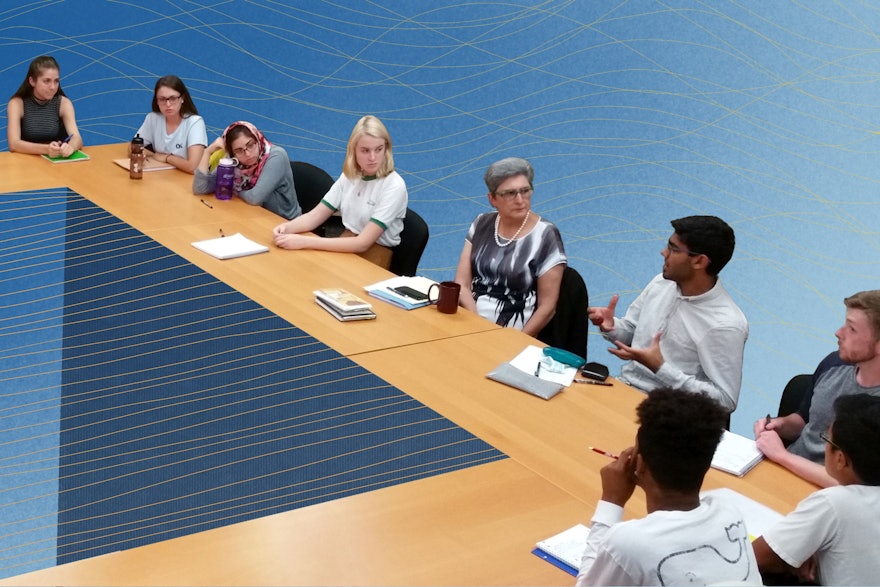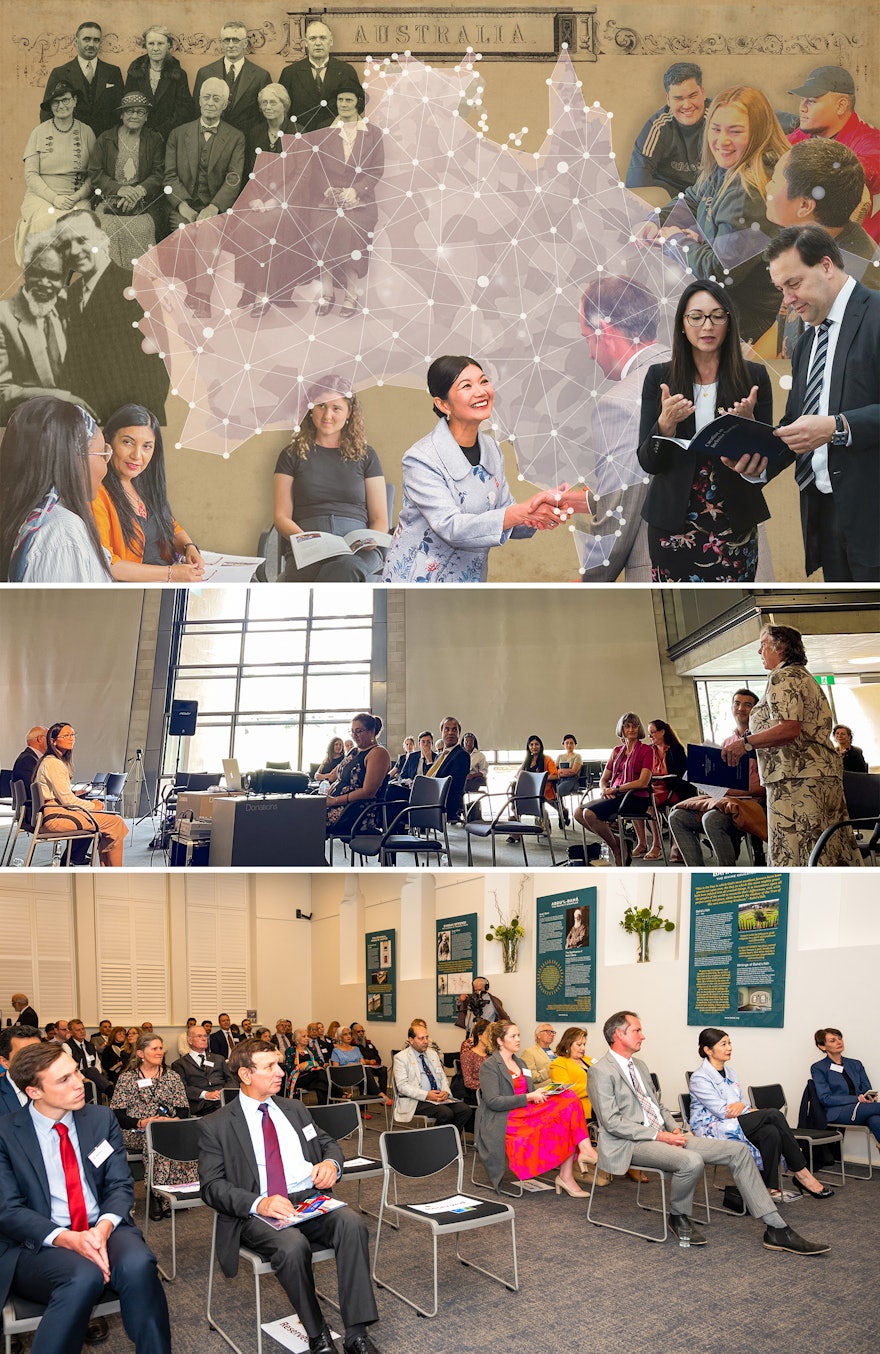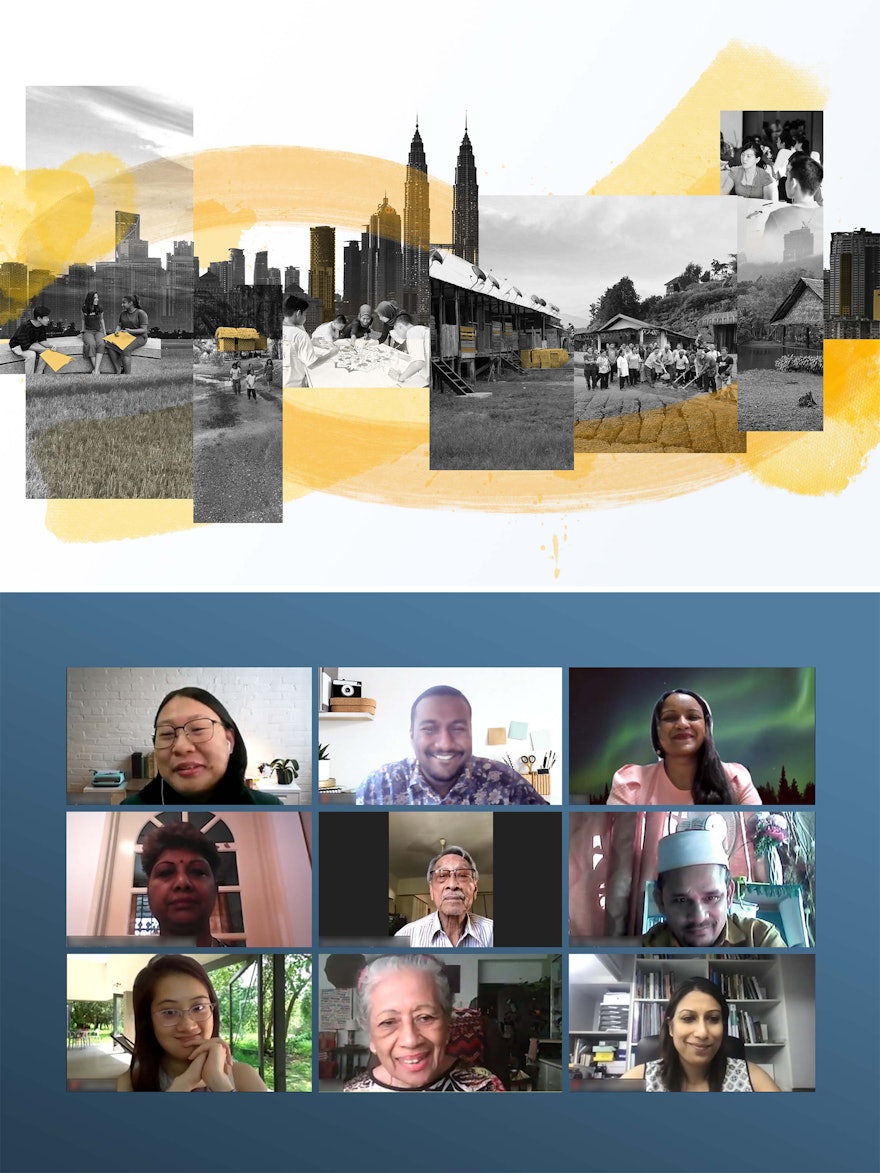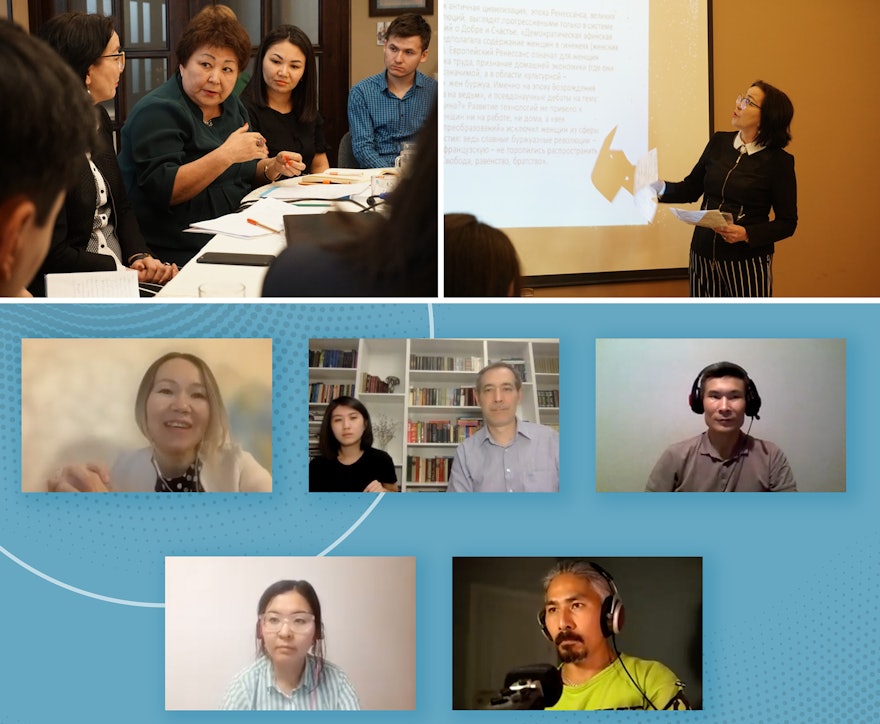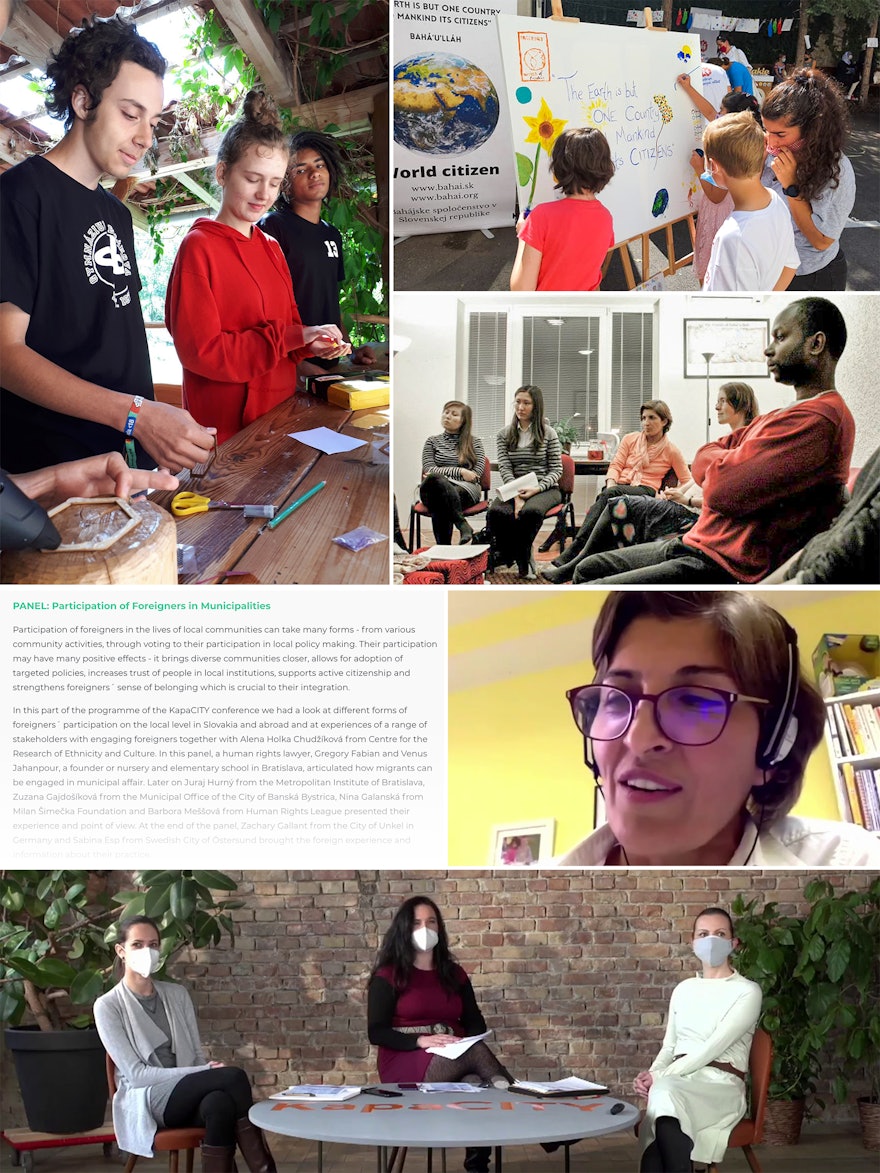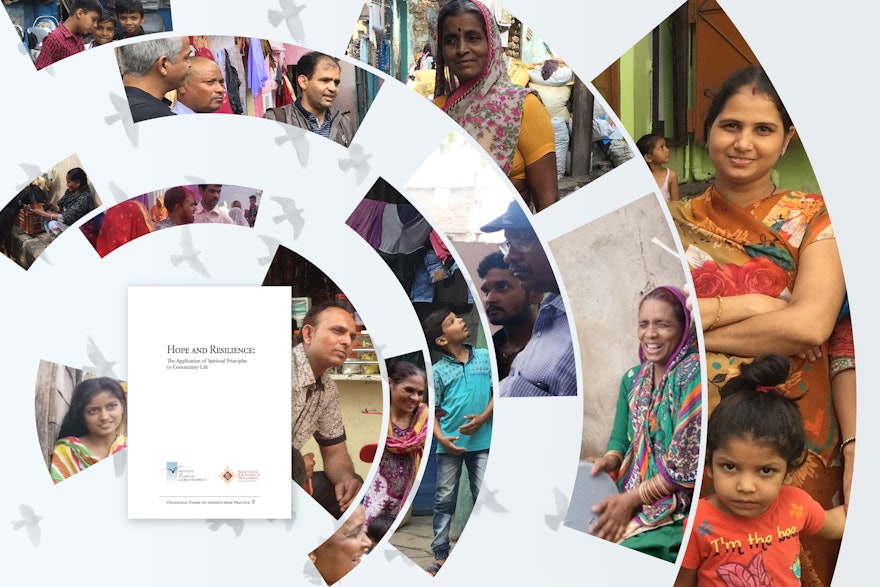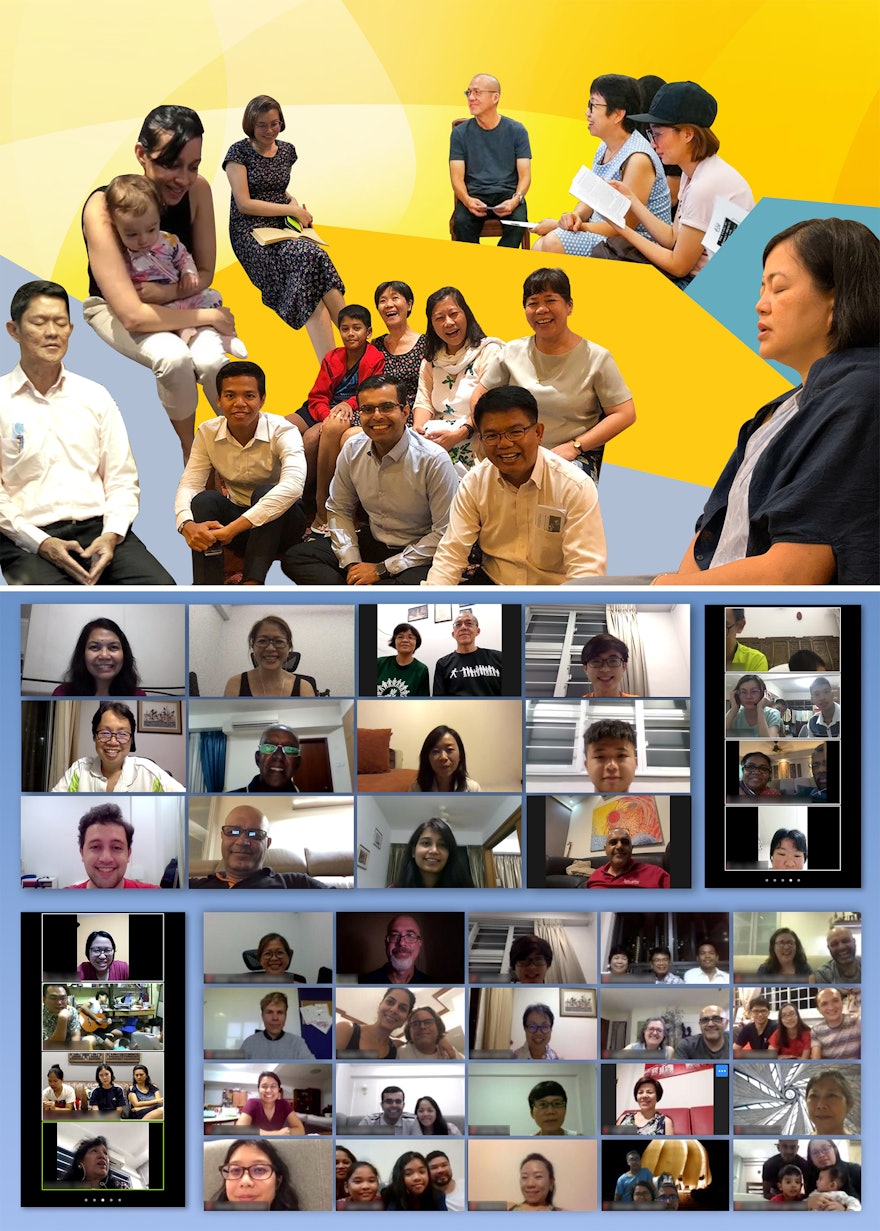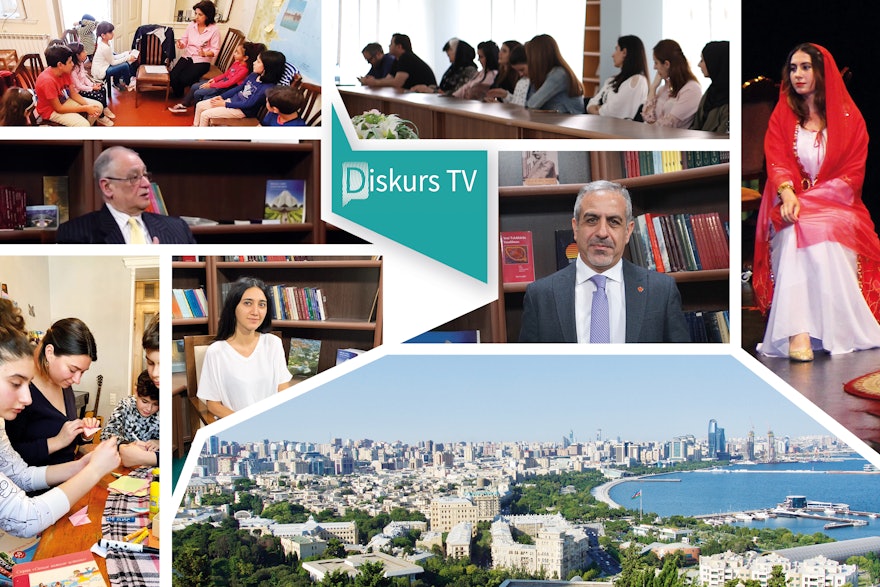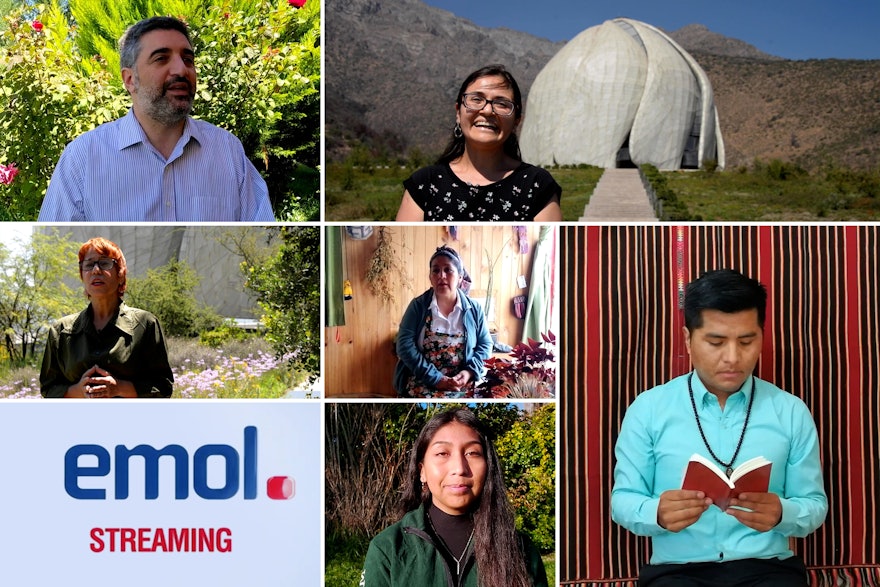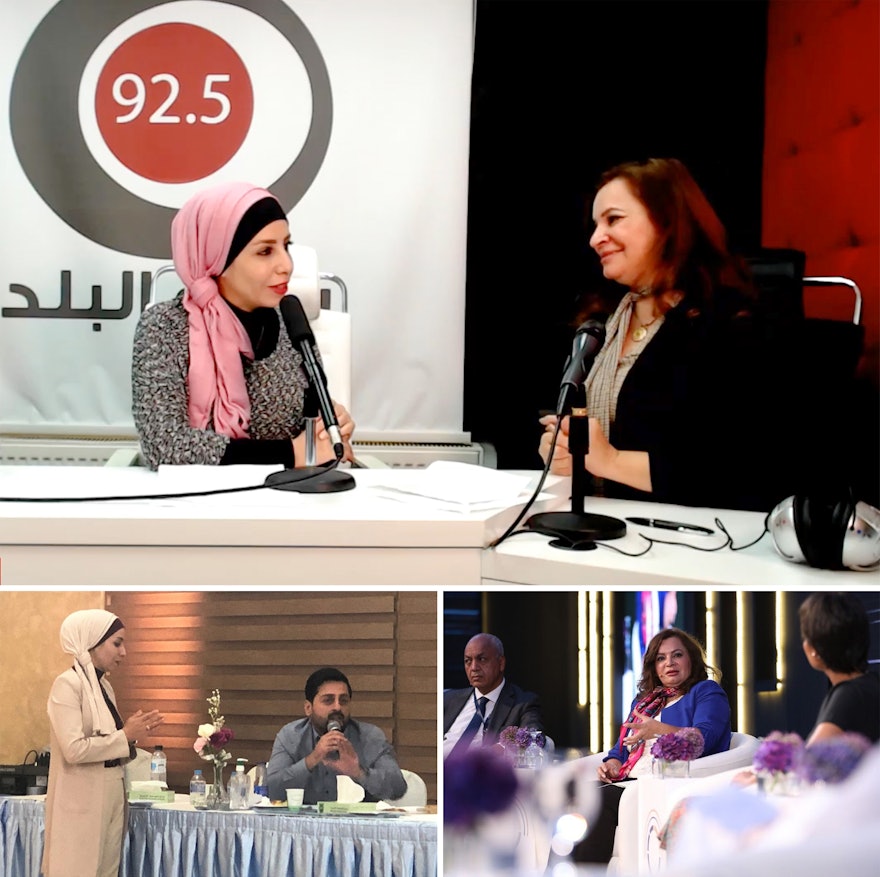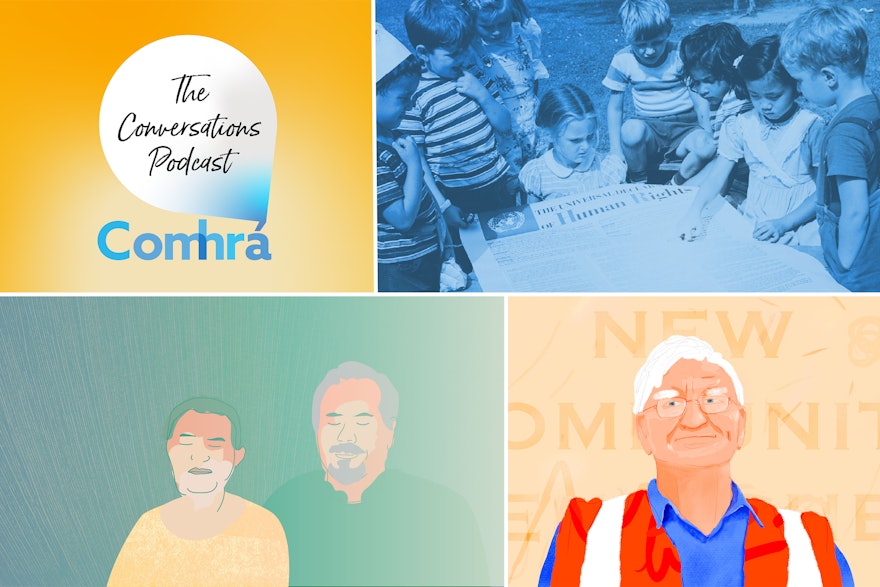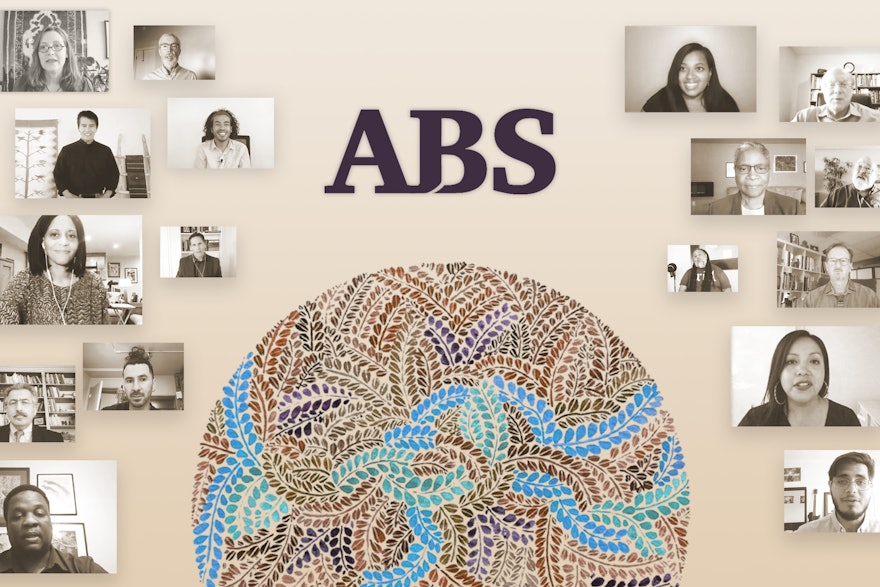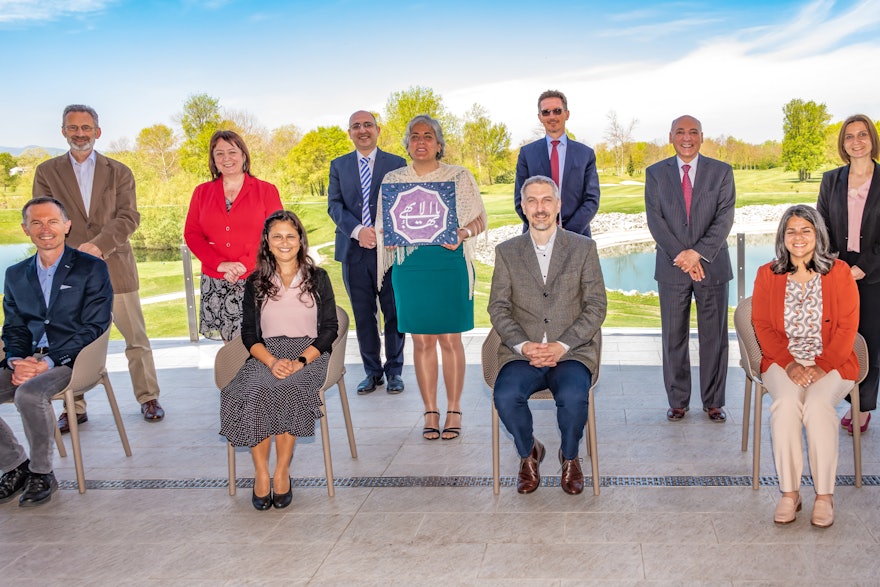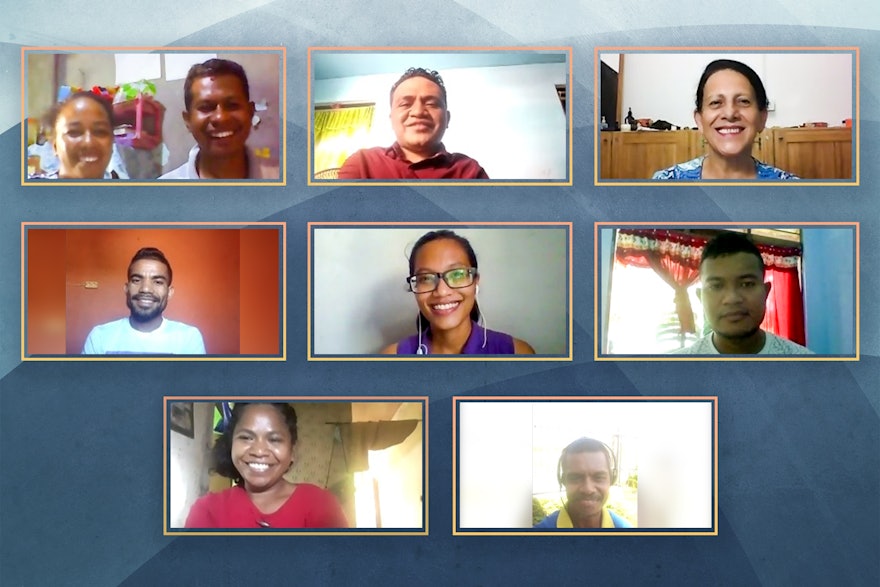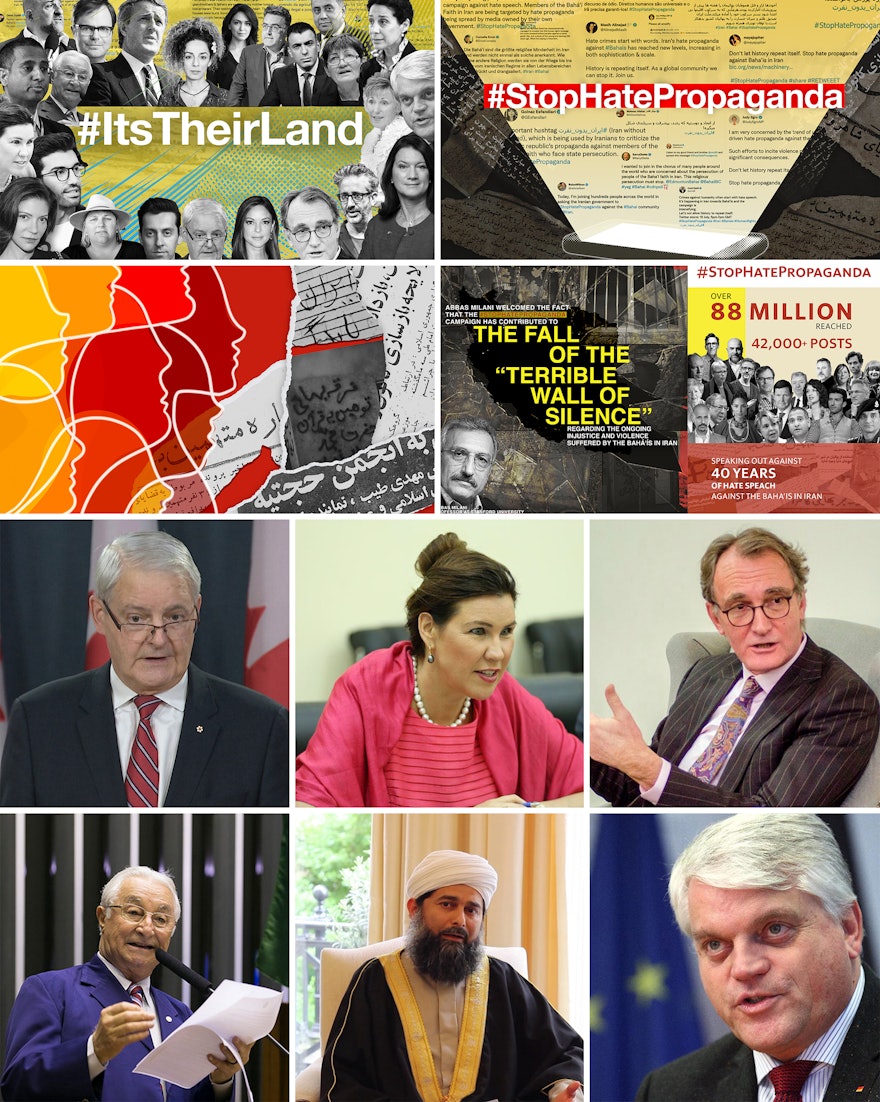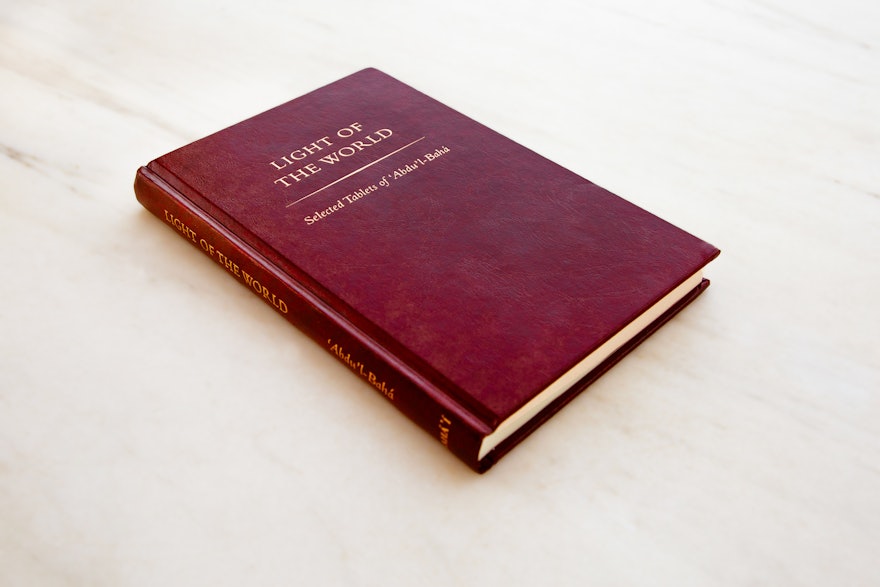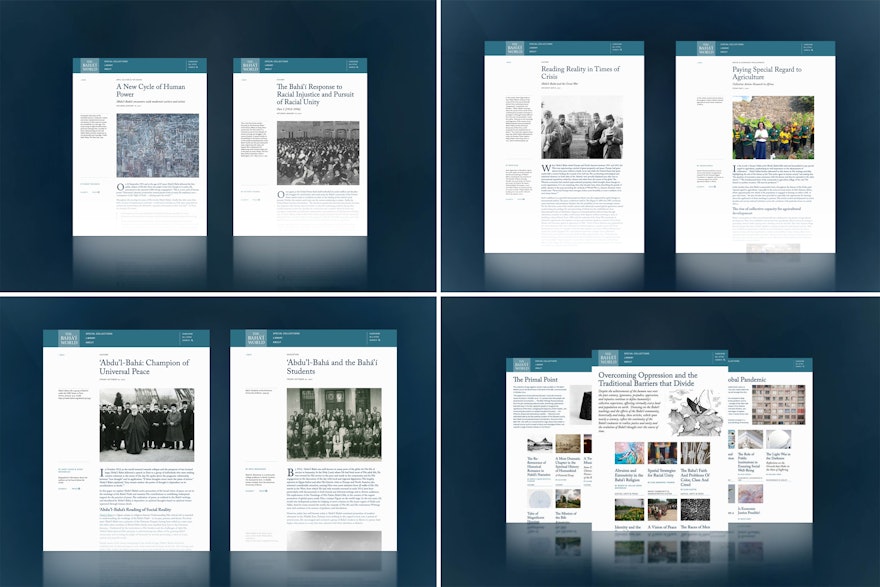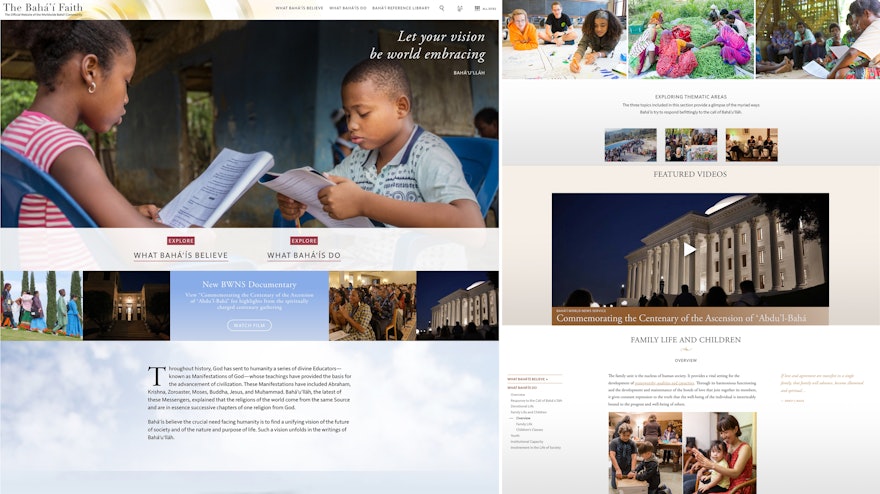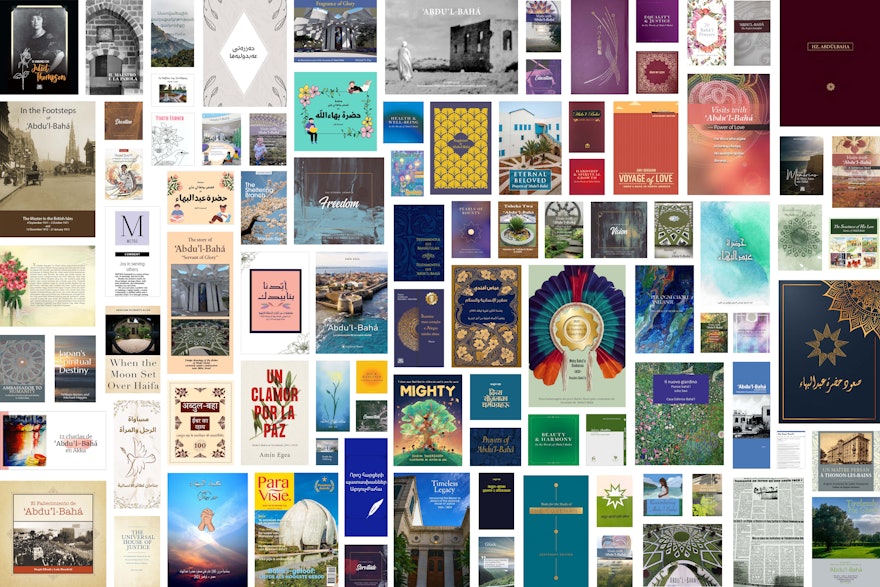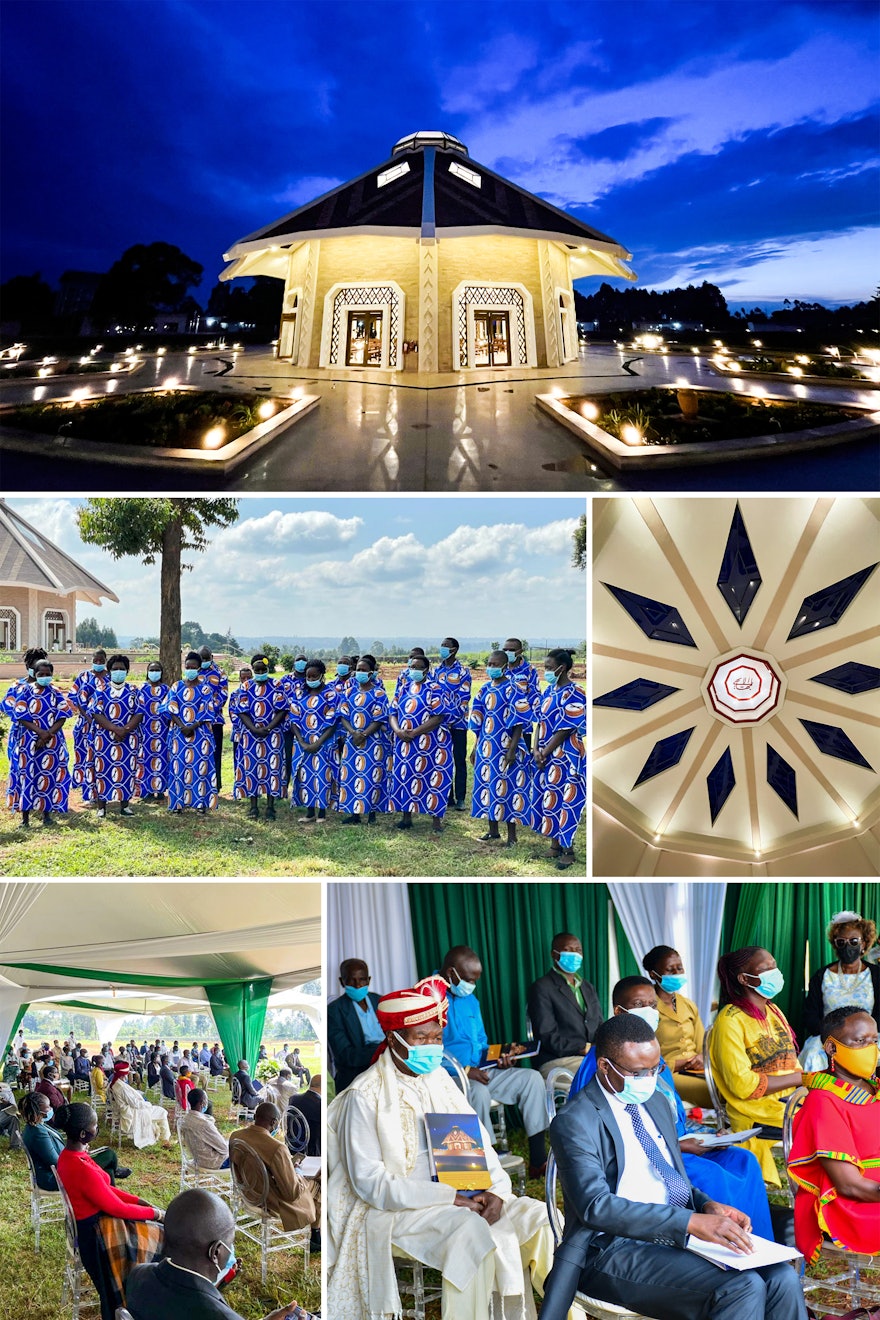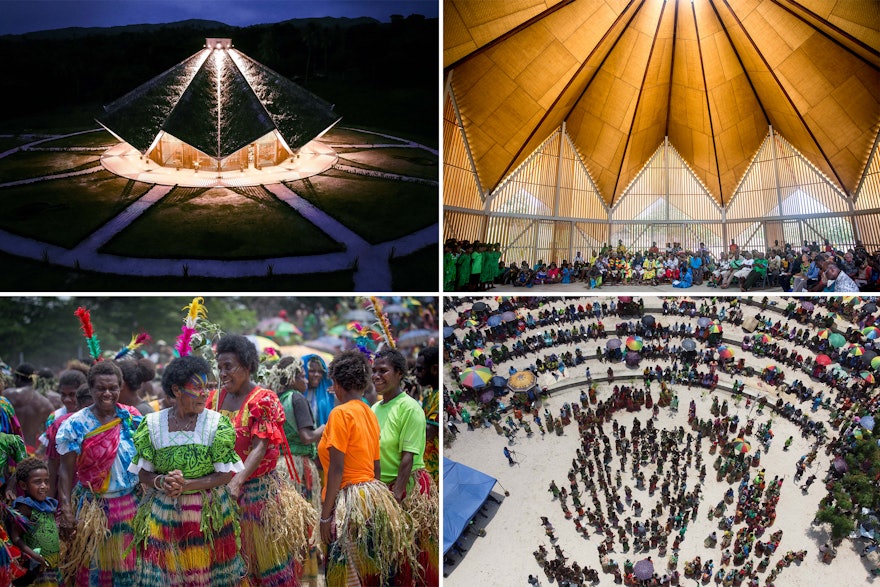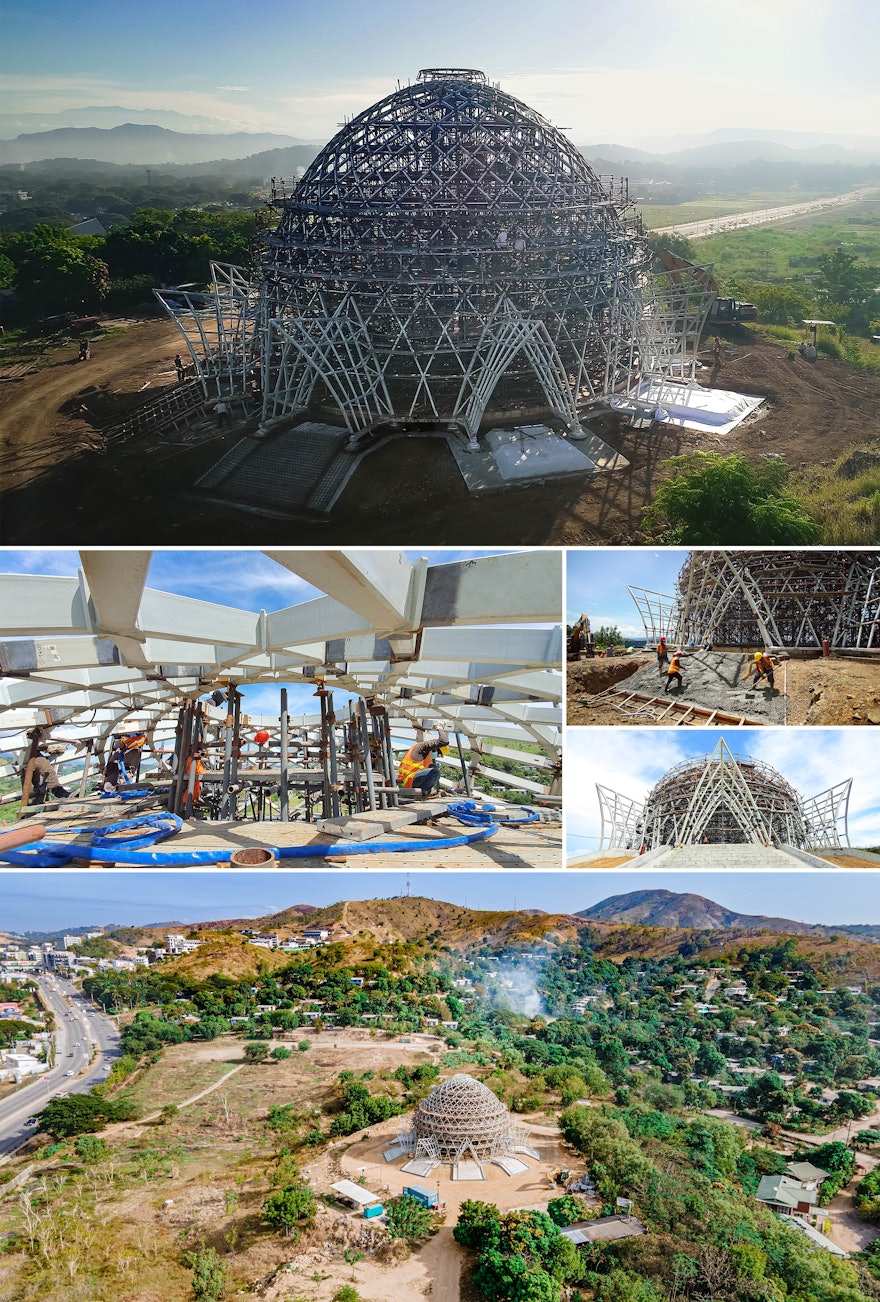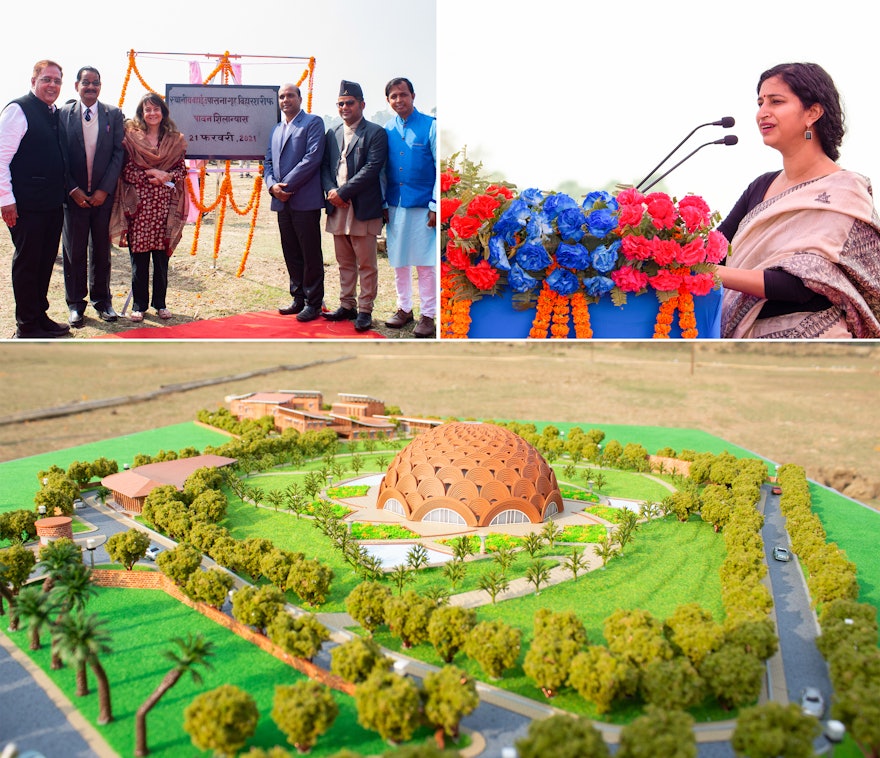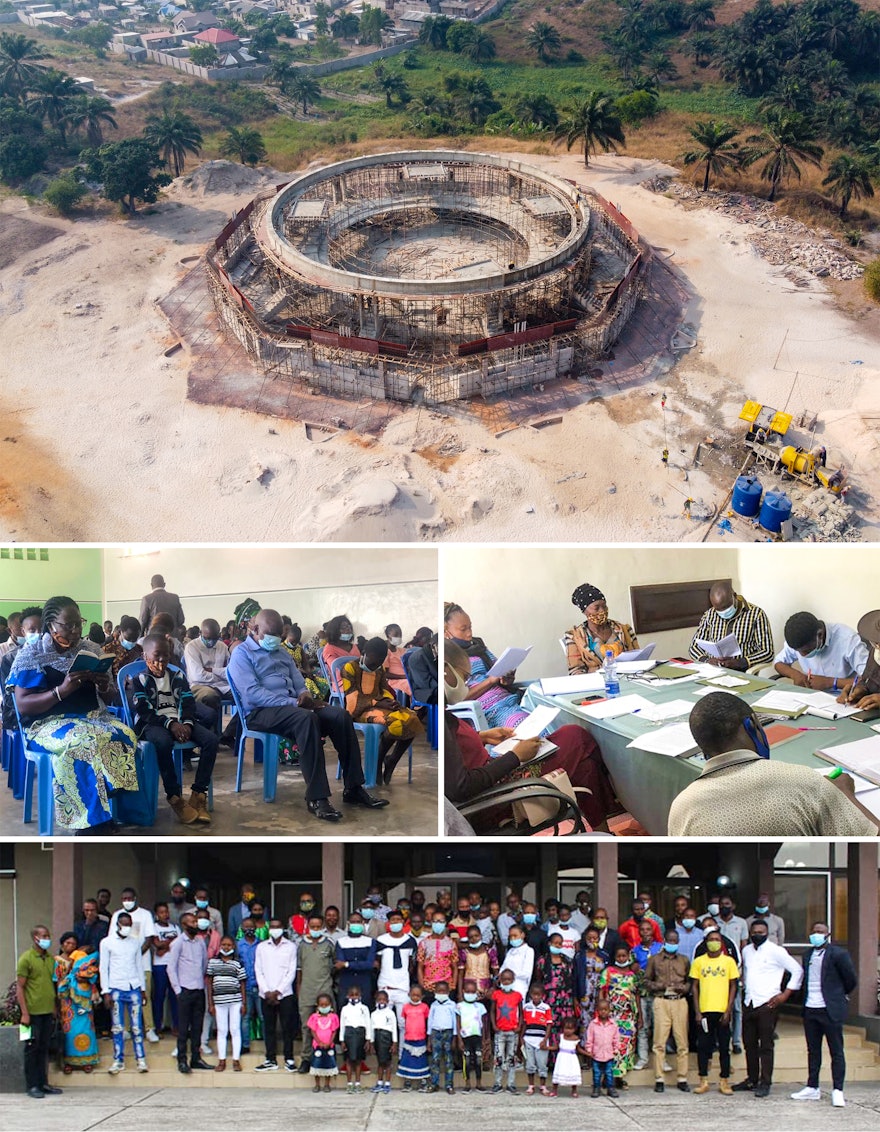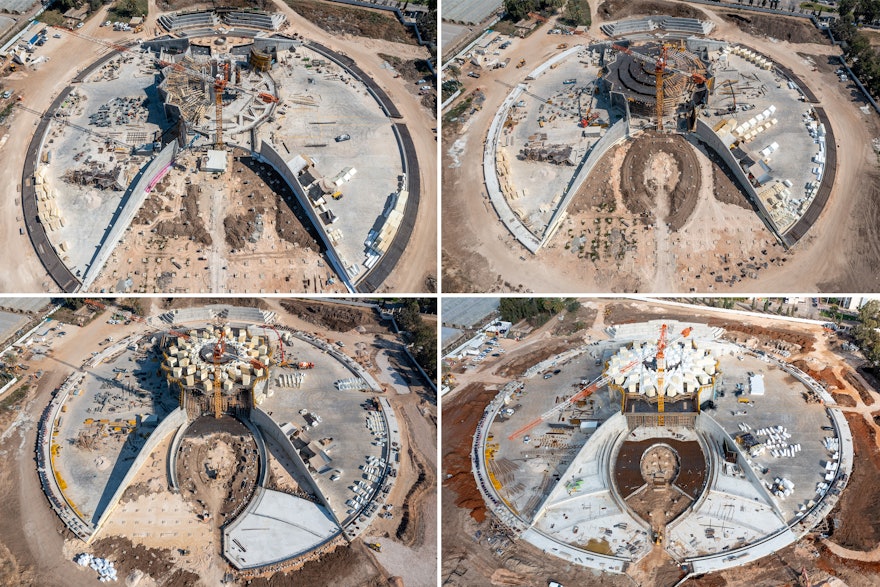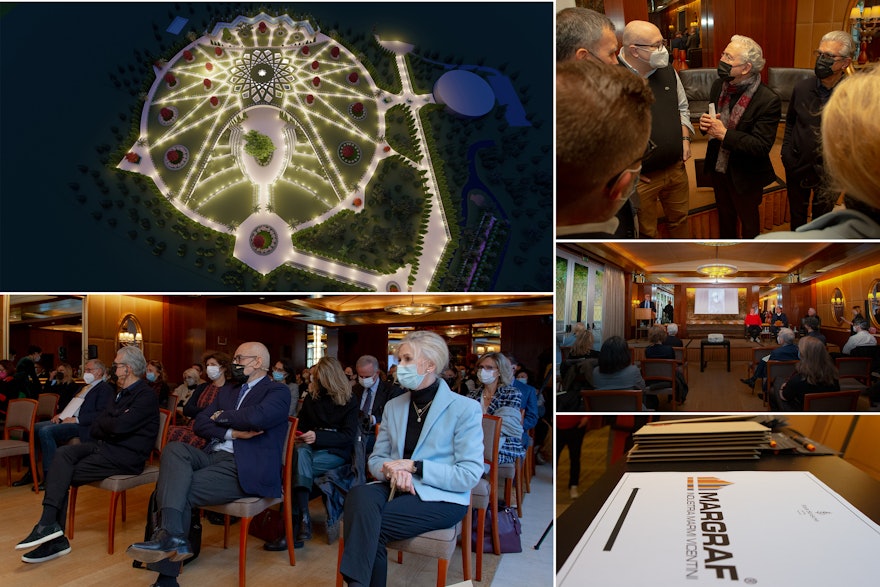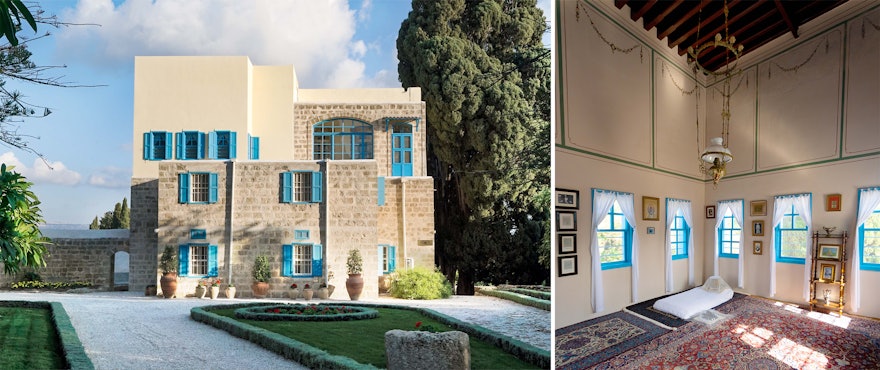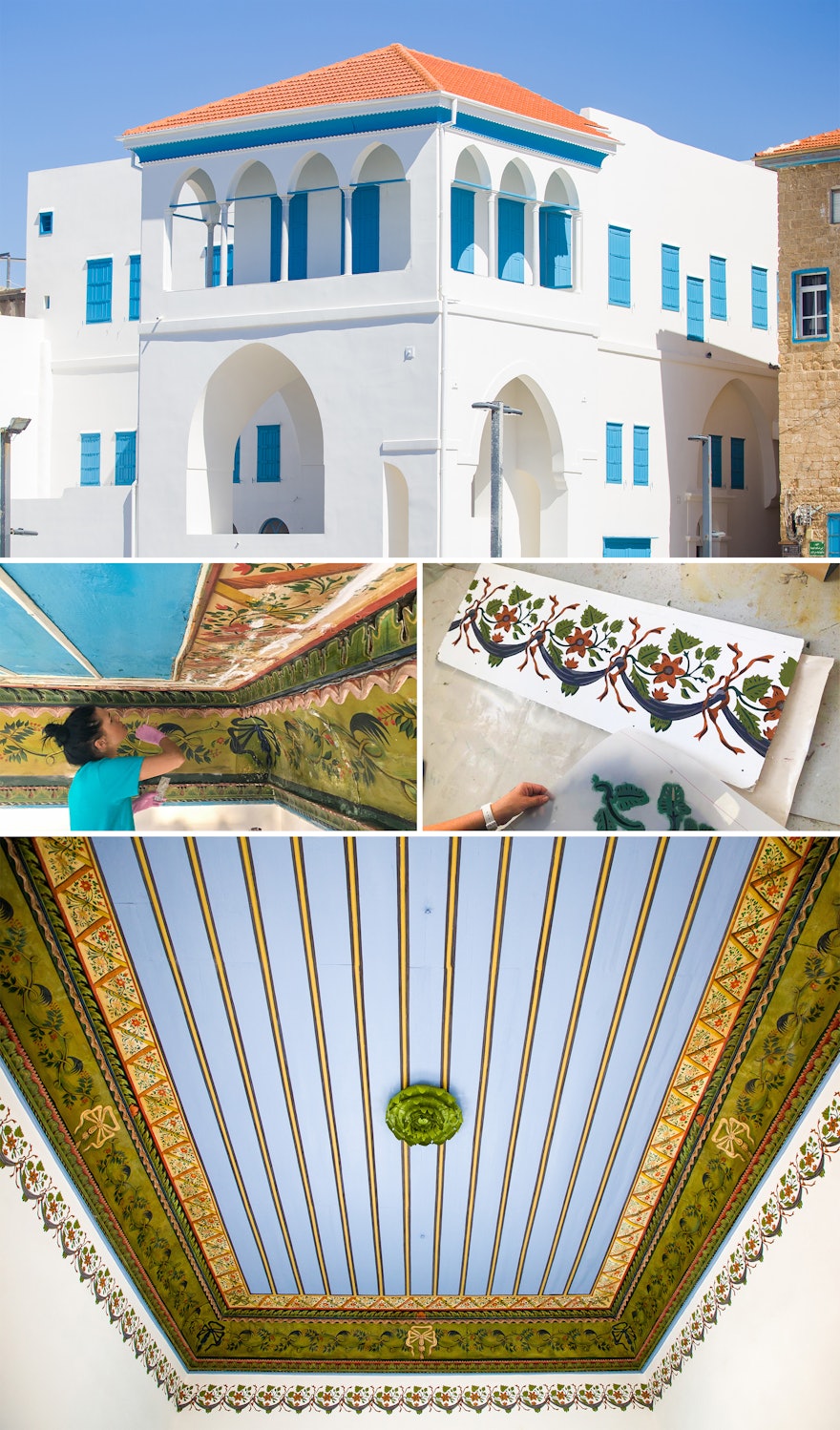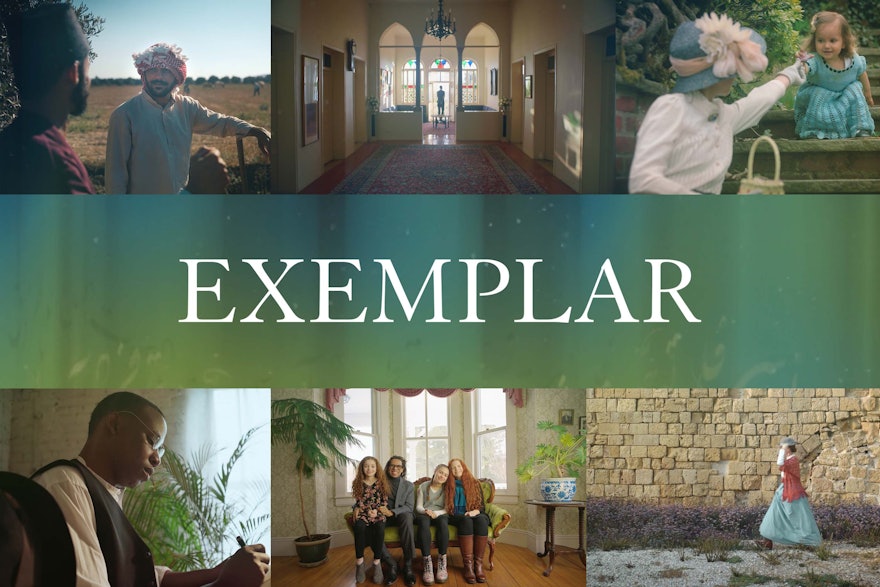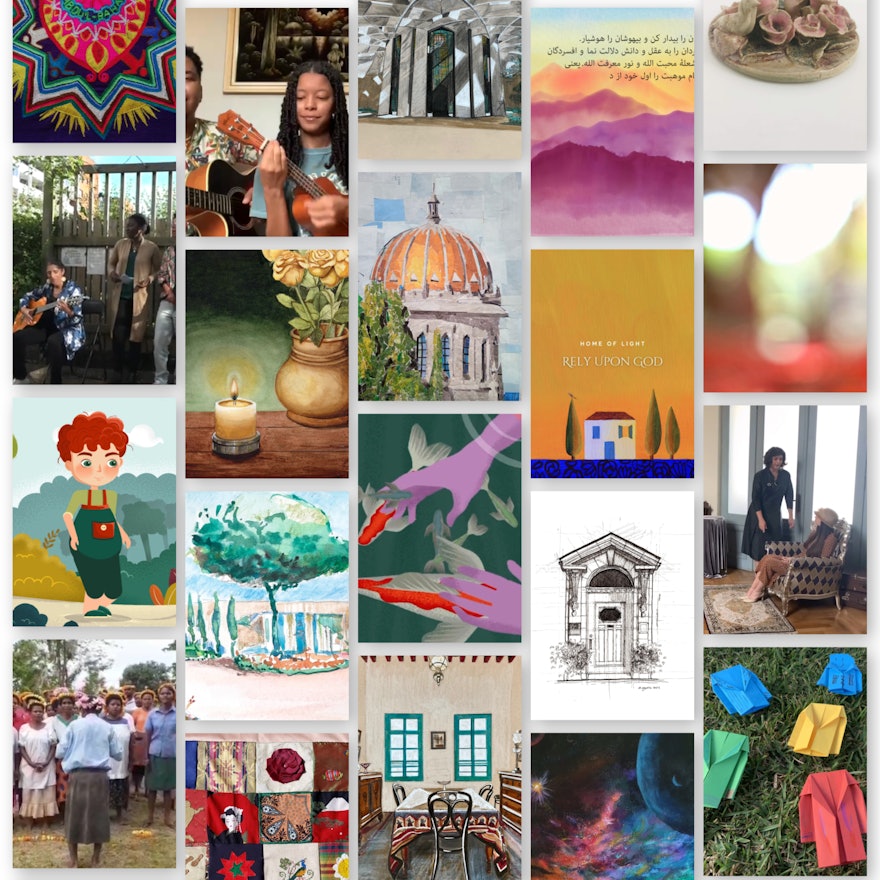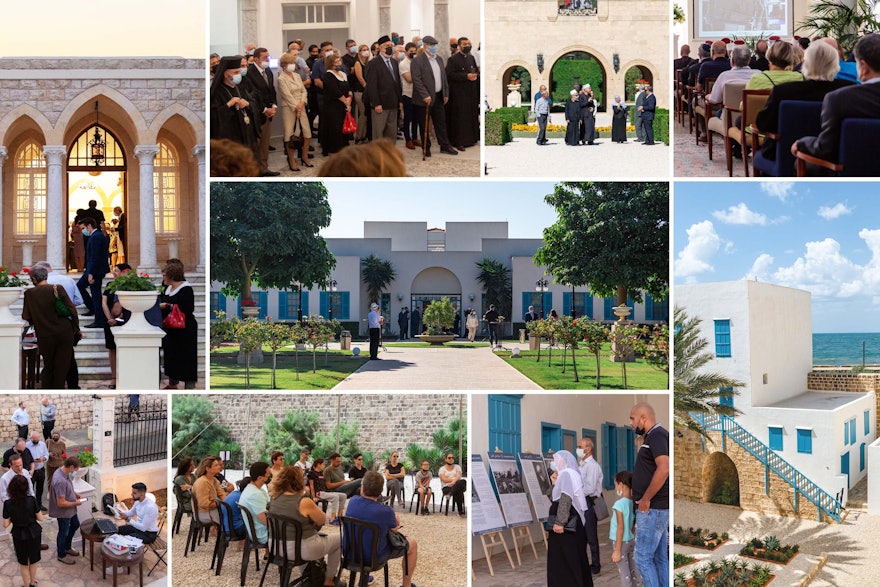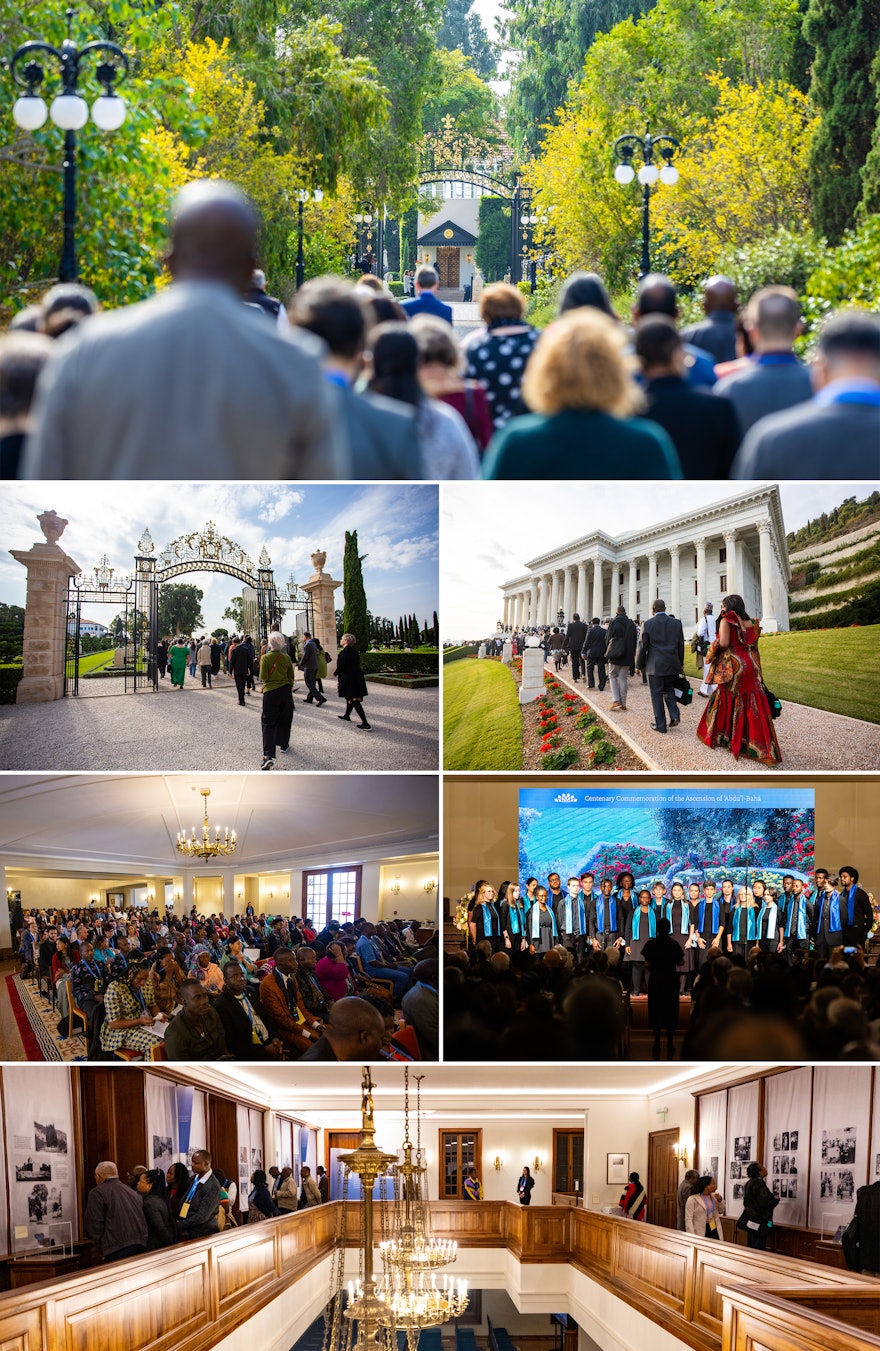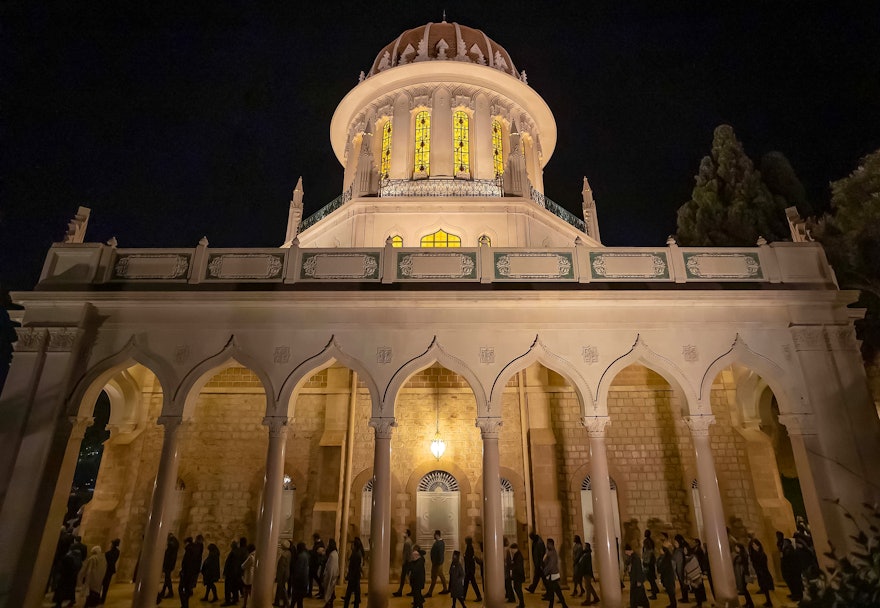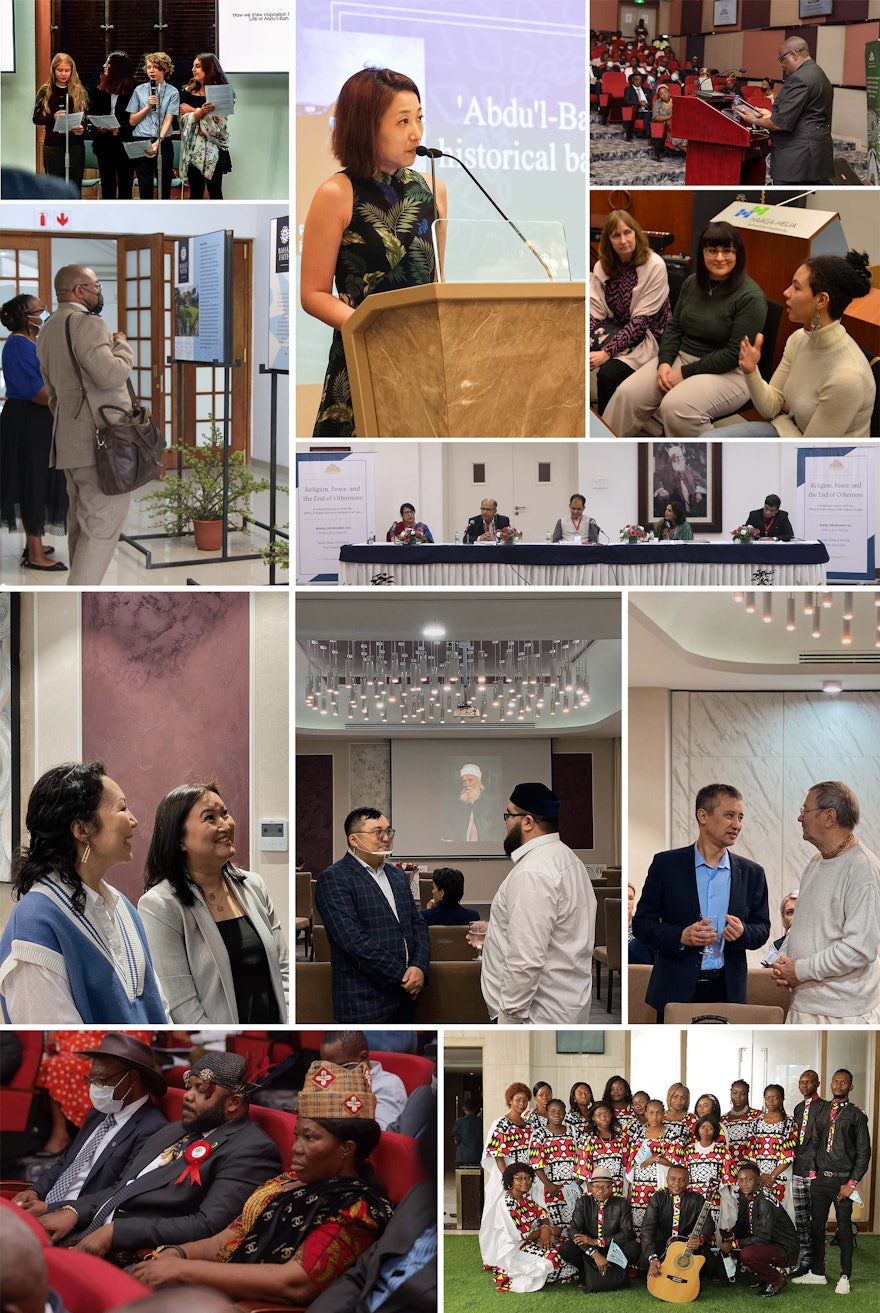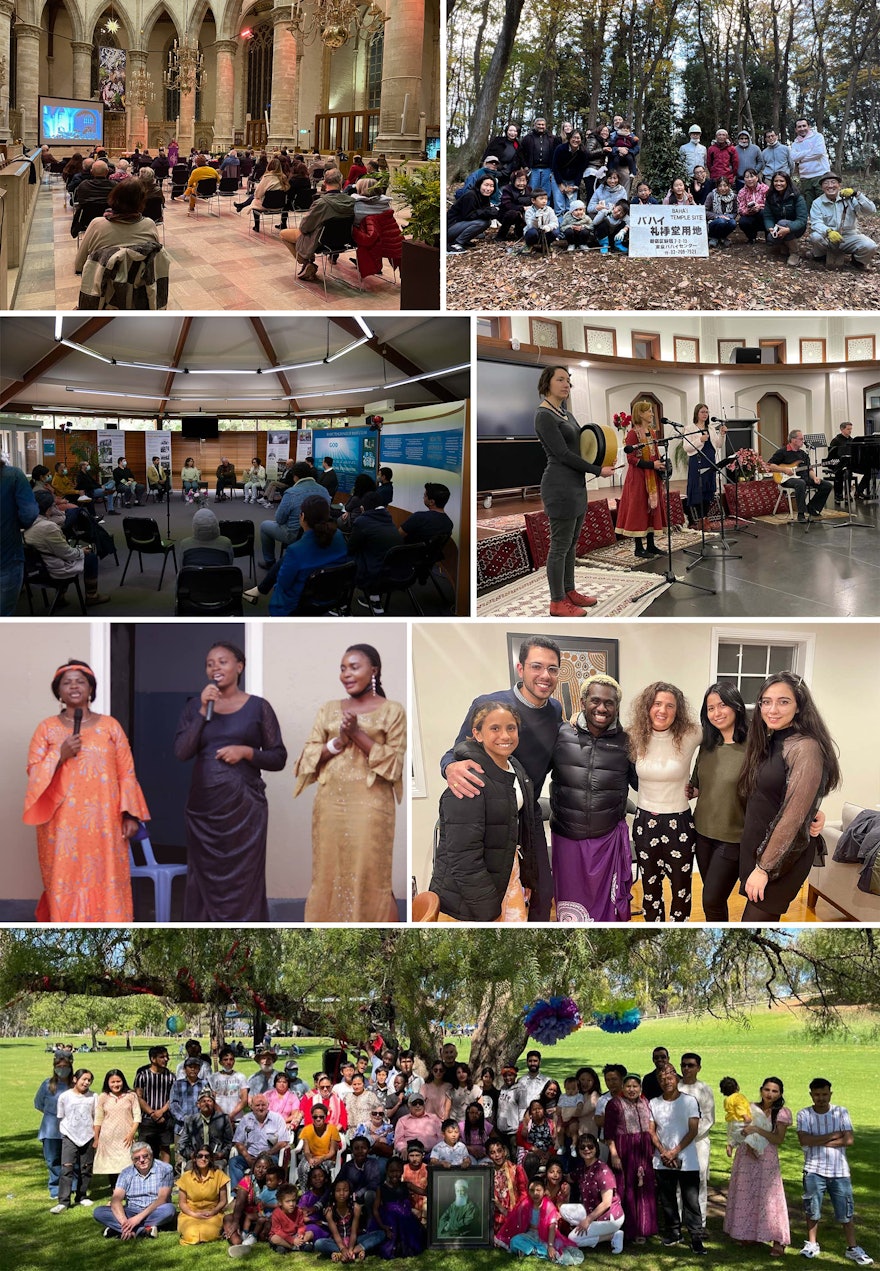2021 in review: A momentous year
BAHÁ’Í WORLD CENTRE — As 2021 comes to a close, the Bahá’í World News Service looks back on a momentous year that included marking of the occasion of the centenary of ‘Abdu’l-Bahá’s passing.
The images below show only a tiny fraction of the unnumbered efforts undertaken by people and communities throughout the world who have been inspired by ‘Abdu’l-Bahá’s example of love for humankind and of selfless service to society.
Pursuing social and economic development endeavors
This year, the News Service reported on various examples of advances in Bahá’í social and economic development endeavors.
An emergency committee established by the Bahá’í National Spiritual Assembly of Honduras early in the pandemic has been able to adapt to assist with new crises.
Despite ongoing conflict in the Central African Republic, the Bahá’ís of the country have been contributing to social progress, most recently forming an emergency committee to provide relief for fellow citizens.
In an article titled “The struggle for their streets,” the Australian Broadcasting Corporation (ABC) highlighted the vibrant community life that is taking shape in a Sydney neighborhood through gatherings for prayer, discussion, and music, which has given rise to an initiative that produces songs expressing the youth’s highest aspirations for their society.
In Cambodia, the efforts of young adolescents to improve air quality and provide shelter from the heat had the added benefit of preventing a patch of road from eroding when floods hit.
In New Zealand, youth engaged in Bahá’í community-building efforts have been inspiring their peers with music that responds to social issues that have been heightened during the pandemic.
In Brazil, a group of youth participating in Bahá’í community-building efforts drew on government support to remove 12 tons of trash from the area around a local river.
Participating in the discourses of society
This past year, the News Service covered a variety of stories on the efforts of the Bahá’í International Community and national Bahá’í communities worldwide to contribute to societal discourses.
At the 65th session of the UN Commission on the Status of Women, the contributions by the Bahá’í International Community (BIC) focused on the need for models of leadership to be reconceptualized and included a statement titled Leadership for a Culture of Equality, in Times of Peril and Peace.
A BIC film, titled “Glimpses into the Spirit of Gender Equality,” marked the 25th anniversary of the landmark Beijing Declaration and Platform for Action that resulted from the Fourth World Conference on Women in 1995. The film reflects on advances made toward the goals for gender equality articulated in the declaration.
The BIC Brussels Office and the UN Food and Agriculture Organization initiated a seminar series to examine the relationship between agriculture, rural sustainability, and migration.
A BIC statement to the 59th session of the UN Commission for Social Development underscored the moral dimensions of technology.
A gathering held by the BIC Brussels Office prompted discussion among municipal leaders and policymakers on the role of urban development in fostering social change in highly diverse neighborhoods.
A discussion, titled “The Media, the Narrative, the People & their Leaders,” organized by the BIC, brought together journalists to explore how news media can build unity as part of the BIC’s wider efforts to contribute to the discourse on the role of media in society.
The BIC Addis Ababa Office brought together scientists and faith leaders to examine how science and religion can guide an effective response to the environmental crisis.
Representatives of the Bahá’í International Community participated in discussions at the COP26 climate summit, exploring the moral dimensions of climate action.
The Bahá’ís of Vanuatu brought together representatives of the Prime Minister’s Office and the Ministry of Education, village chiefs, and different social actors to reflect together on the role of moral education in society.
Over 2,000 women, men, youth, and children from Baraka, the Democratic Republic of the Congo, and the surrounding area gathered to explore insights about the advancement of women gained through the decades-long efforts of the Bahá’ís of the region aimed at social progress.
In the Guéra region of Chad, some 30 traditional chiefs from the area gathered in the village of Baro to discuss the future of their people.
A national gathering on coexistence held by the Bahá’ís of Bahrain brought together Sheikh Khalid bin Khalifa Al Khalifa, representing the king of Bahrain, and other prominent people to reflect on ‘Abdu’l-Bahá’s call for peace.
Members of Canada’s Bahá’í Office of External Affairs at the inauguration of the all-party interfaith caucus for a rare dialogue about the role of faith in governance.
A unique forum initiated by the Bahá’ís of the United Arab Emirates has been bringing together religious leaders for profound discussions about the role of religion in society.
In Papua New Guinea, an event marking World Religion Day brought together faith communities for a first-of-its-kind gathering to pave a path for greater harmony in their society.
The centenary of the first race amity conference held by the American Bahá’í community was marked by a three-day symposium exploring racial unity and social change.
A course offered by the Bahá’í Chair for World Peace at the University of Maryland has been exploring societal issues in the light of moral principles, such as the elimination of prejudice.
In Australia, the Bahá’í Office of External Affairs has been stimulating profound discussions among government officials, social actors, journalists, faith communities, and others in gatherings across states and territories in the country.
The Bahá’ís of Malaysia have been fostering constructive dialogue among a cross-section of their society about how all people can contribute to greater social cohesion.
The Bahá’í Office of External Affairs of Kazakhstan has been bringing together journalists for profound discussions on the ethical and moral dimensions of journalism within the broader context of creating a more cohesive society.
In Slovakia, the Bahá’ís of that country have been exploring new conceptions of human nature, challenging common notions about migration and fostering greater participation of migrants in the life of society.
A new research paper jointly released by the Bahá’í Chair for Studies in Development at Devi Ahilya University in Indore, India, and the Institute for Studies in Global Prosperity (ISGP) explores how communities draw on principles, such as the oneness of humankind and humanity’s interconnectedness with nature, in their efforts to contribute toward the common good.
The Bahá’í Nineteen Day Feast—regular gatherings dedicated to prayer, consultation, and fellowship—was added to Singapore’s intangible cultural heritage list, stimulating thinking in the country about consultation as a means for achieving greater unity among diverse groups of people.
The Bahá’ís of Azerbaijan launched “Discourse TV,” a video program featuring profound conversations on topics such as the equality of women and men and the role of media in society.
A program prepared by the Bahá’ís of Chile and broadcast on a national media network offered perspectives on how people can remain hopeful and respond constructively to the health crisis.
A discussion series among journalists initiated by the Bahá’ís of Jordan inspired a new radio show that provides a public forum for the exploration of how to lead a coherent life and how to be a source of social good.
A podcast by the Bahá’ís of Ireland titled Comhrá—meaning friendly conversation in Irish—has been providing a window into grassroots responses to issues facing society.
The annual conference of the Association for Bahá’í Studies, held this year in Ottawa, Canada, brought together over 2,500 people to reflect on their efforts to contribute to a wide variety of areas of thought and discourse.
Establishment of new Bahá’í National Spiritual Assemblies
This year saw the election of two new National Spiritual Assemblies.
At its first ever national convention, held in Zagreb, the Bahá’í community of Croatia elected the country’s Bahá’í National Spiritual Assembly.
The historic election of the first Bahá’í National Spiritual Assembly of Timor-Leste took place amid tireless efforts to respond to the devastating floods in the country.
Persecution of the Bahá’ís in Iran
As the persecution of the Bahá’ís of Iran continued, an extraordinary wave of support for them followed, evoking a global outcry from government officials, leaders of thought, civil society organizations, activists, religious leaders, artists, prominent Iranians, and many others. One notable instance was the response of government officials, prominent figures, and many people around the world to an effort drawing attention to the Iranian government’s decades-long campaign of hate speech and propaganda against Iranian Bahá’ís.
Publications online and in print
The past year saw the release of many publications in honor of the centenary of the passing of ‘Abdu’l-Bahá.
A volume of newly translated tablets penned by ‘Abdu’l-Bahá was released, recounting aspects of the life of Bahá’u’lláh, the tribulations He endured, and the purpose of His Faith.
The Kitáb-i-Aqdas was published in Icelandic and Tok Pisin for the first time.
New essays honoring the life of ‘Abdu’l-Bahá were released by the Bahá’í World publication.
Bahai.org saw a major redesign on the 25th year since its launch.
Countless people and communities around the world created a vast number of publications inspired by ‘Abdu’l-Bahá’s life of service to humanity.
Bahá’í Houses of Worship
The News Service reported on progress in the construction of Houses of Worship in several countries this past year and covered stories on how these temples have been infusing their communities with the spirit of service and worship.
The opening of a local temple in Matunda Soy, Kenya—the first of its kind in the continent of Africa—was celebrated by thousands of people nearby and across that country as a momentous step in the spiritual journey of their people.
A dedication ceremony for the opening of the House of Worship in Vanuatu included Prime Minister Bob Loughman and other government officials, traditional chiefs, and some 3,000 attendees.
A significant milestone was reached with the completion of the superstructure of the House of Worship in Papua New Guinea.
A historic groundbreaking ceremony marked the start of construction for the first local Bahá’í House of Worship in India.
The emerging temple in the Democratic Republic of the Congo has been inspiring growing numbers of people to action, contributing to the material and spiritual progress of their society.
Construction of the Shrine of ‘Abdu’l-Bahá
This year saw many advances in the construction of the Shrine of ‘Abdu’l-Bahá, including the completion of the plaza walls and the start of work on the trellis.
These snapshots from the past year show aspects of the progress on the construction of the Shrine.
Journalists across Italy attended a press conference in Milan to learn about the preparation of the marble that will clad the underside of the trellis of the Shrine of ‘Abdu’l-Bahá and the eight columns of the main edifice.
Restoration of Bahá'í Holy Places
Restoration and conservation work was carried out on the Mansion of Mazra'ih and the House of ‘Abbúd.
The project to preserve the Mansion of Mazra‘ih saw significant progress, most notably with conservation work being carried out on Bahá’u’lláh’s room.
A two-year-long restoration project on the House of ‘Abbúd concluded, strengthening its seismic resistance while restoring parts of the building that had deteriorated over time.
Commemoration of the centenary of ‘Abdu’l-Bahá’s passing
The centenary gave rise to countless endeavors throughout the world that inspired hope and offered a vision of a more peaceful world.
Exemplar, a film commissioned by the Universal House of Justice for the occasion, was released.
Global preparations for the commemoration of the centenary of ‘Abdu’l-Bahá’s passing gave rise to an outpouring of artistic expressions inspired by His life and work.
Preparations for the centenary also led to a surge in films, podcasts, and other media productions that cast light on ‘Abdu’l-Bahá’s life of unremitting service to humanity.
Several events held in Haifa and ‘Akká welcomed municipal officials and area residents to mark the centenary at historic sites associated with ‘Abdu’l-Bahá.
Representatives of Bahá’í communities from nations and regions around the world arrived in Haifa for a historic gathering at the Bahá’í World Centre to commemorate the ascension of ‘Abdu’l-Bahá.
In the early hours of Saturday, 27 November, attendees of the centenary gathering assembled in the courtyard of the Haifa Pilgrim House, adjacent to the Shrine of the Báb, in a solemn and reverent atmosphere to mark the ascension of ‘Abdu’l-Bahá.
National Bahá’í communities around the world brought together diverse social actors to explore some of the universal principles embodied by ‘Abdu’l-Bahá.
On 27 November, centenary gatherings encircled the globe, inspiring countless people to consider the implications of ‘Abdu’l-Bahá’s call for universal peace for their lives.
